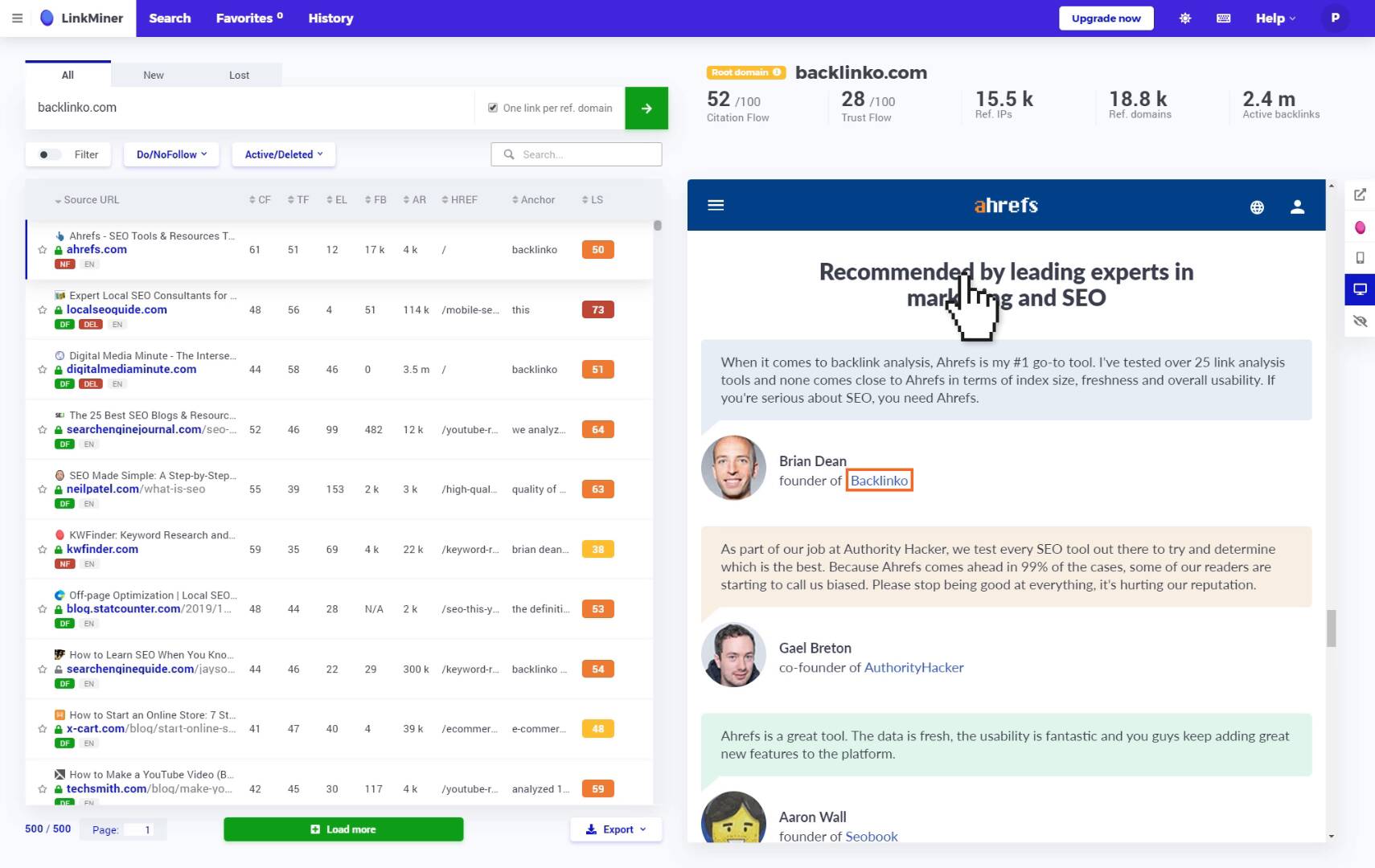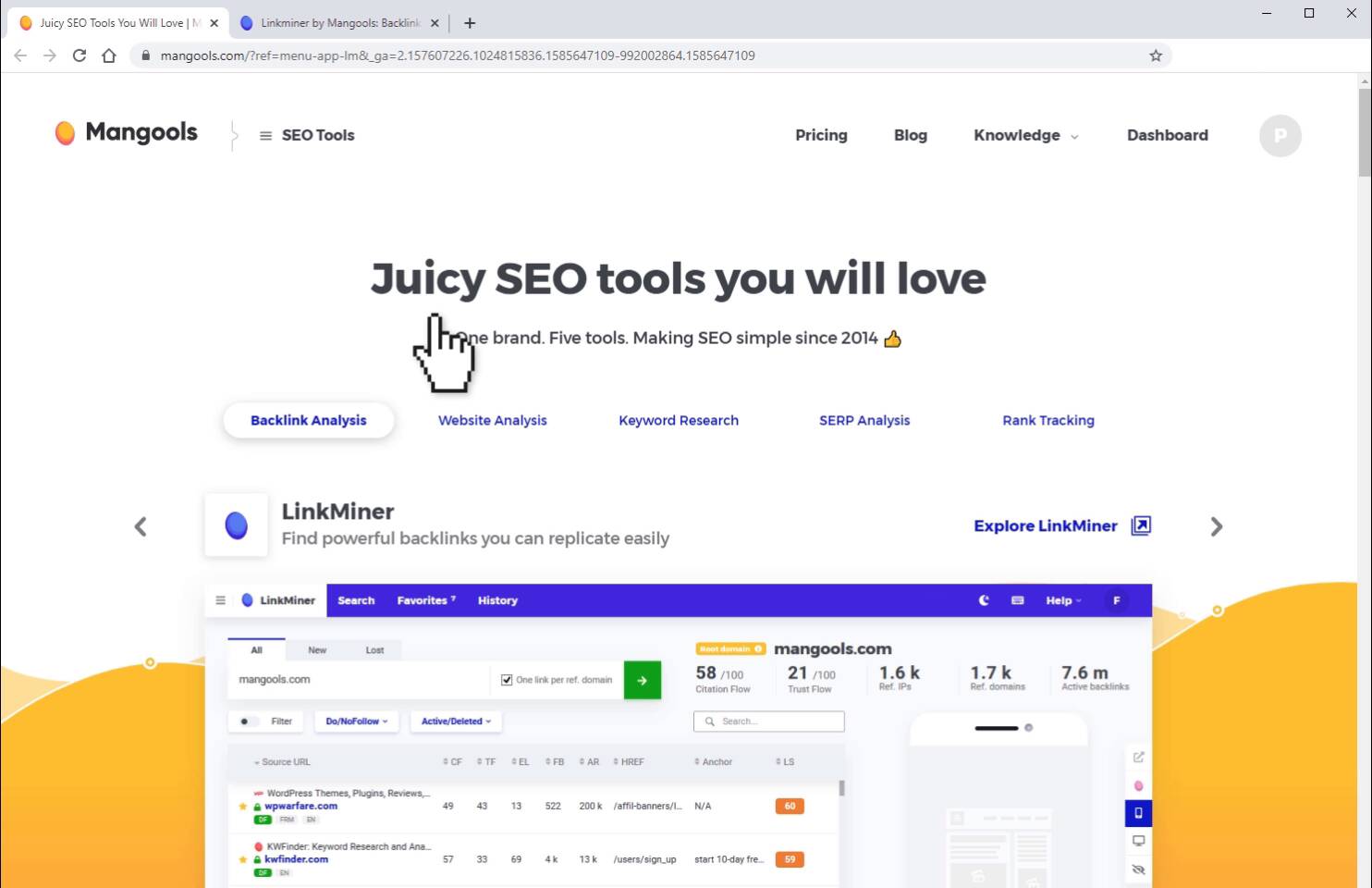Mangools Review: How Does This SEO Tool Stack Up?
Written by Brian Dean

This is my review of the SEO tool Mangools.
In this review I’ll do a deep-dive into what this tool offers, including:
- Best (and worst) features
- A review of their support
- How the tool works
- How Mangools compares to other paid SEO tools (like Ahrefs)
- Lots more
So if you’re considering signing up for Mangools, this review should help you with your decision.
Let’s jump right in.
What Is Mangools?
Mangools is an SEO software suite that’s made up of five tools (they call them “apps”):
- KWFinder
- SERPChecker
- SERPWatcher
- LinkMiner
- SiteProfiler
When you login to Mangools, you’ll see your dashboard page.
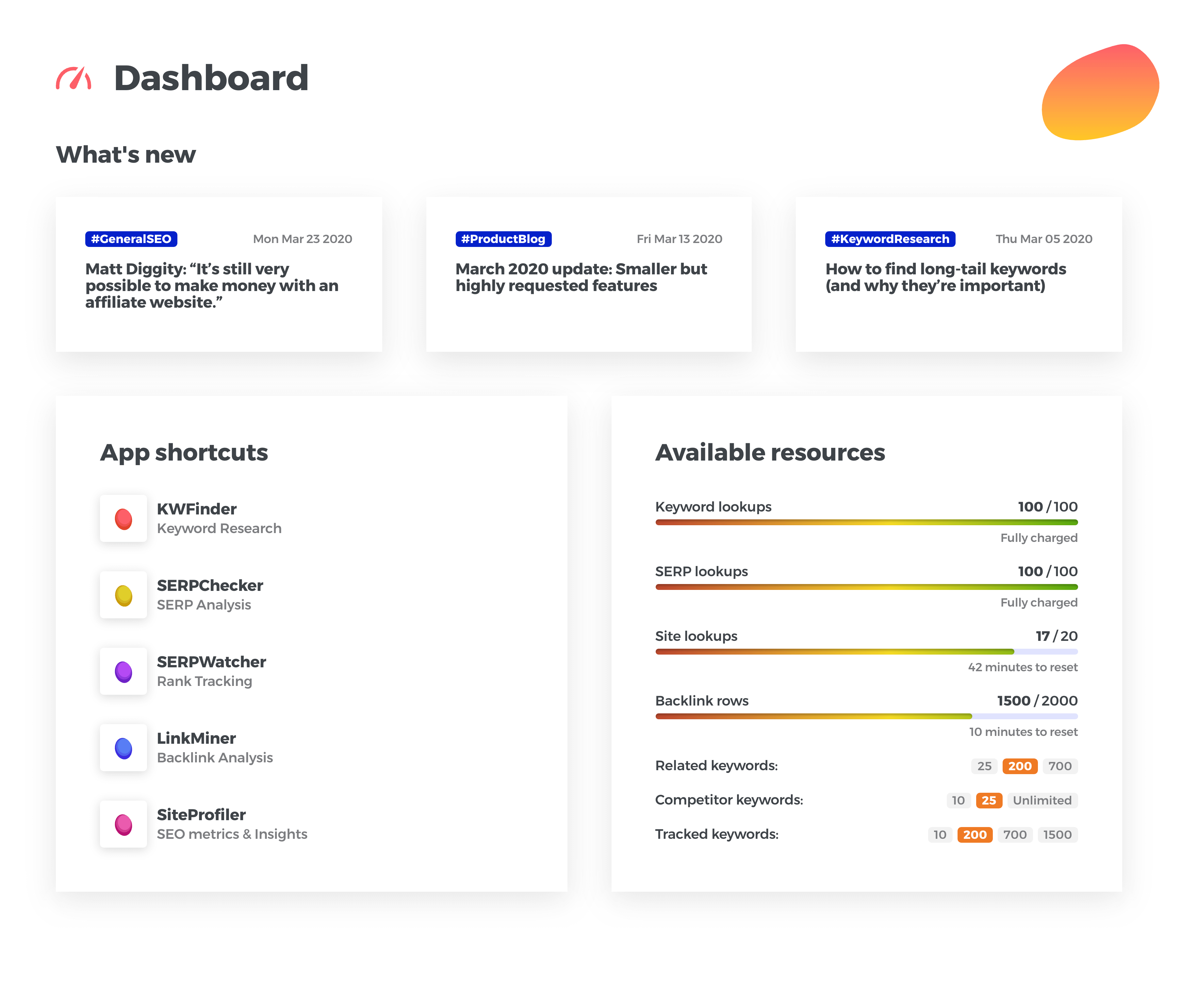
And you can access each of the 5 apps through this page.
You also can see how many SERPs, keywords and backlinks that you can look up under your current plan (I have a Mangools Premium account).
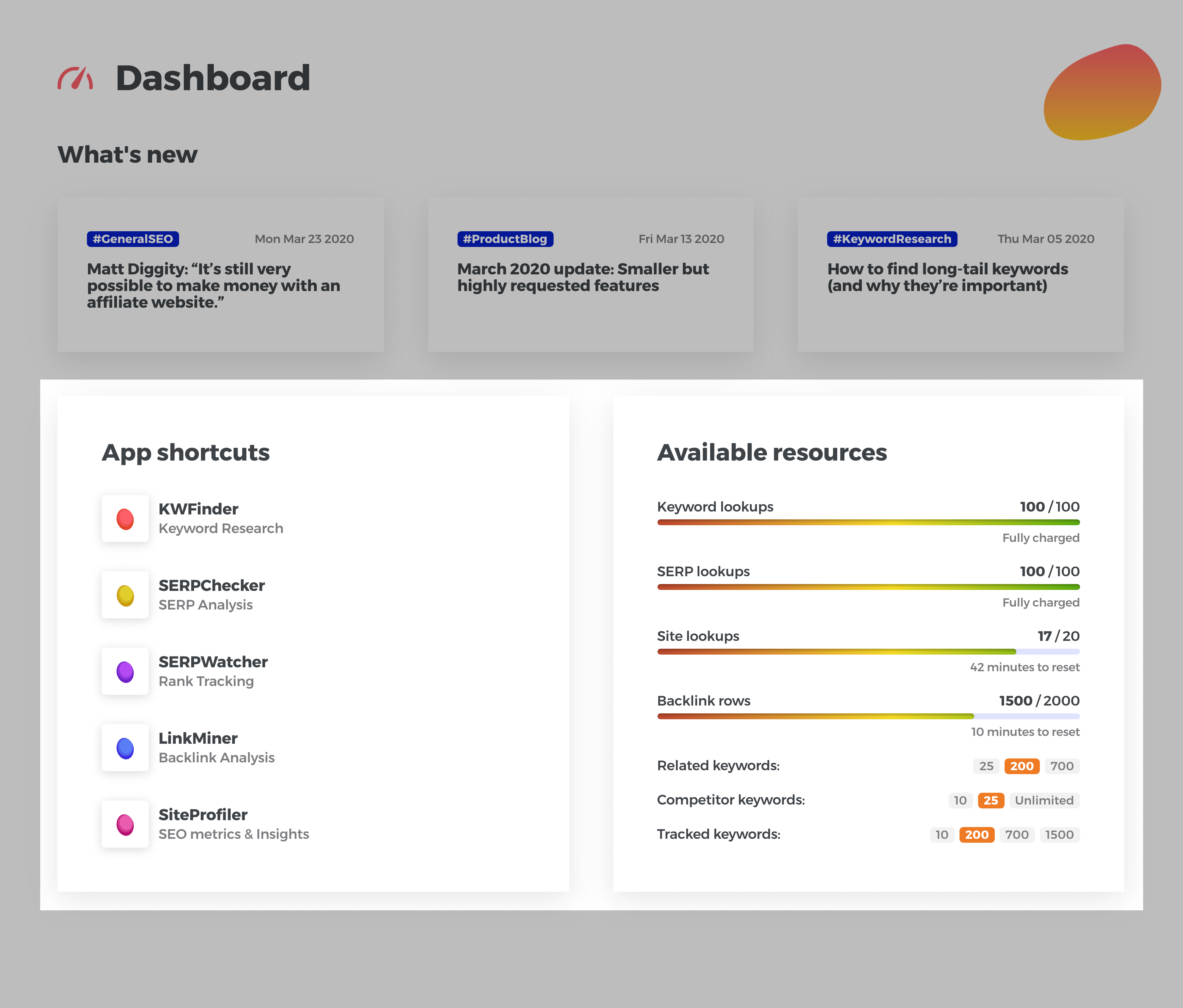
With that, it’s time for me to review each of the key features found within Mangools.
KWFinder Keyword Research Tool
KWFinder is Mangools’ premiere feature. And it’s the tool that most people try first.
KWFinder works like pretty much any other keyword tool out there: Type in a keyword and get stats (like search volume and CPC) on that keyword. Along with a bunch of keywords ideas:
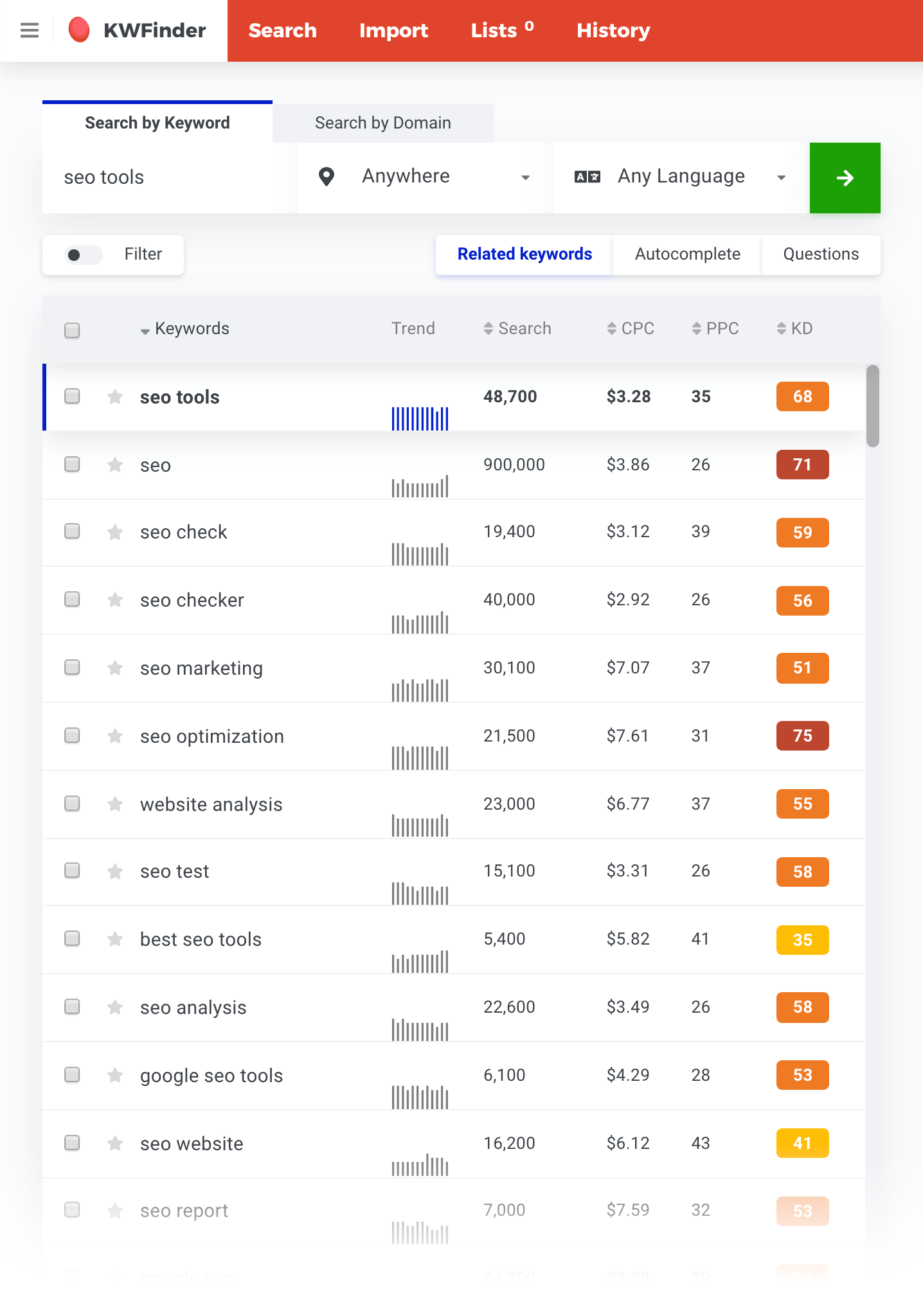
In general, the suggestions that KWFinder spits out are super good. In my experience, most keyword research tools just split out variations of the same keyword.
And yes, KWFinder does come up with lots of related terms.
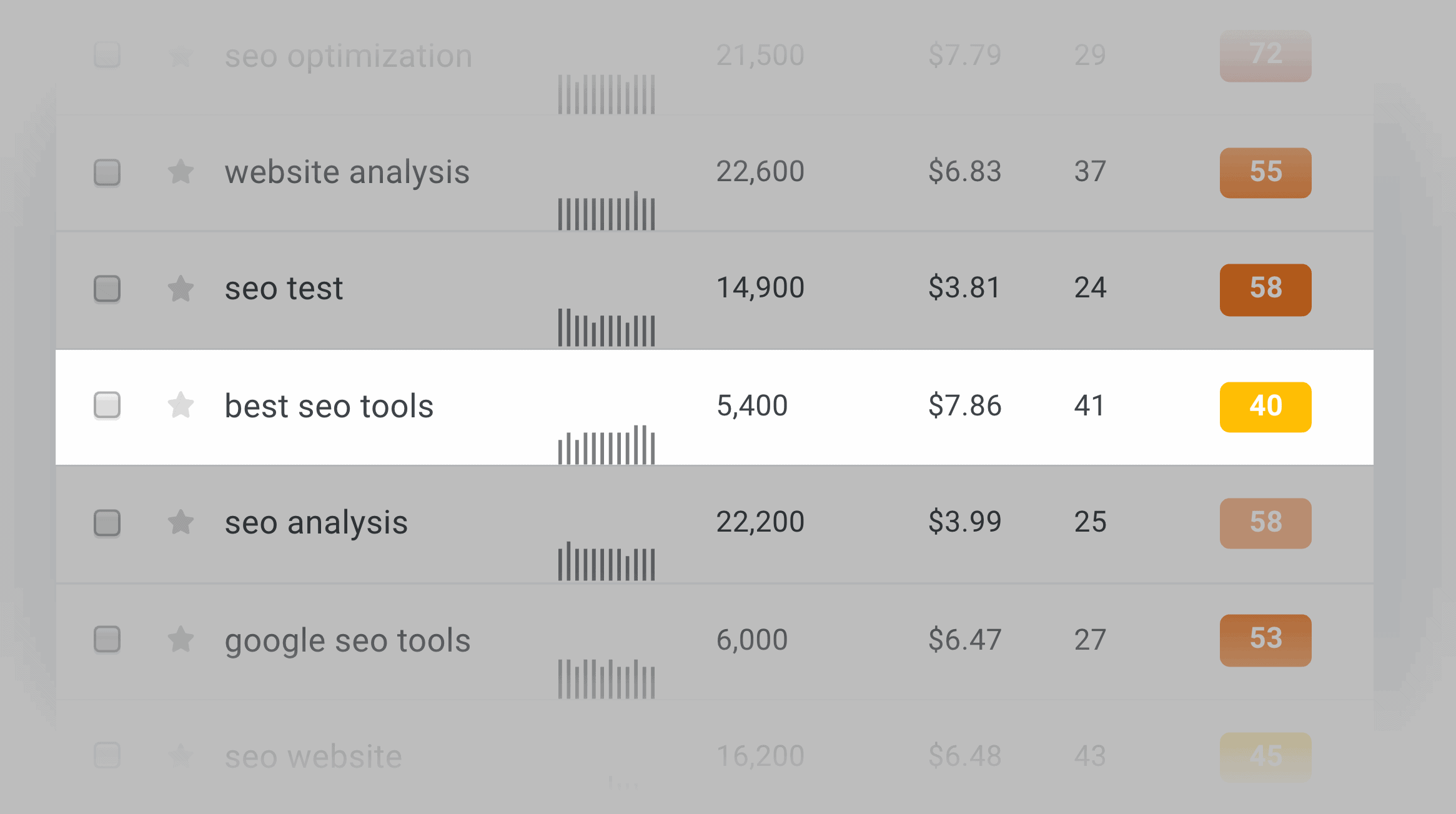
But they also generate keywords that aren’t just a word added to the beginning or end of what you typed in.
(Or a bunch of autocomplete suggestions)
Instead, KWFinder tends to come up with lots of “lateral” keywords.
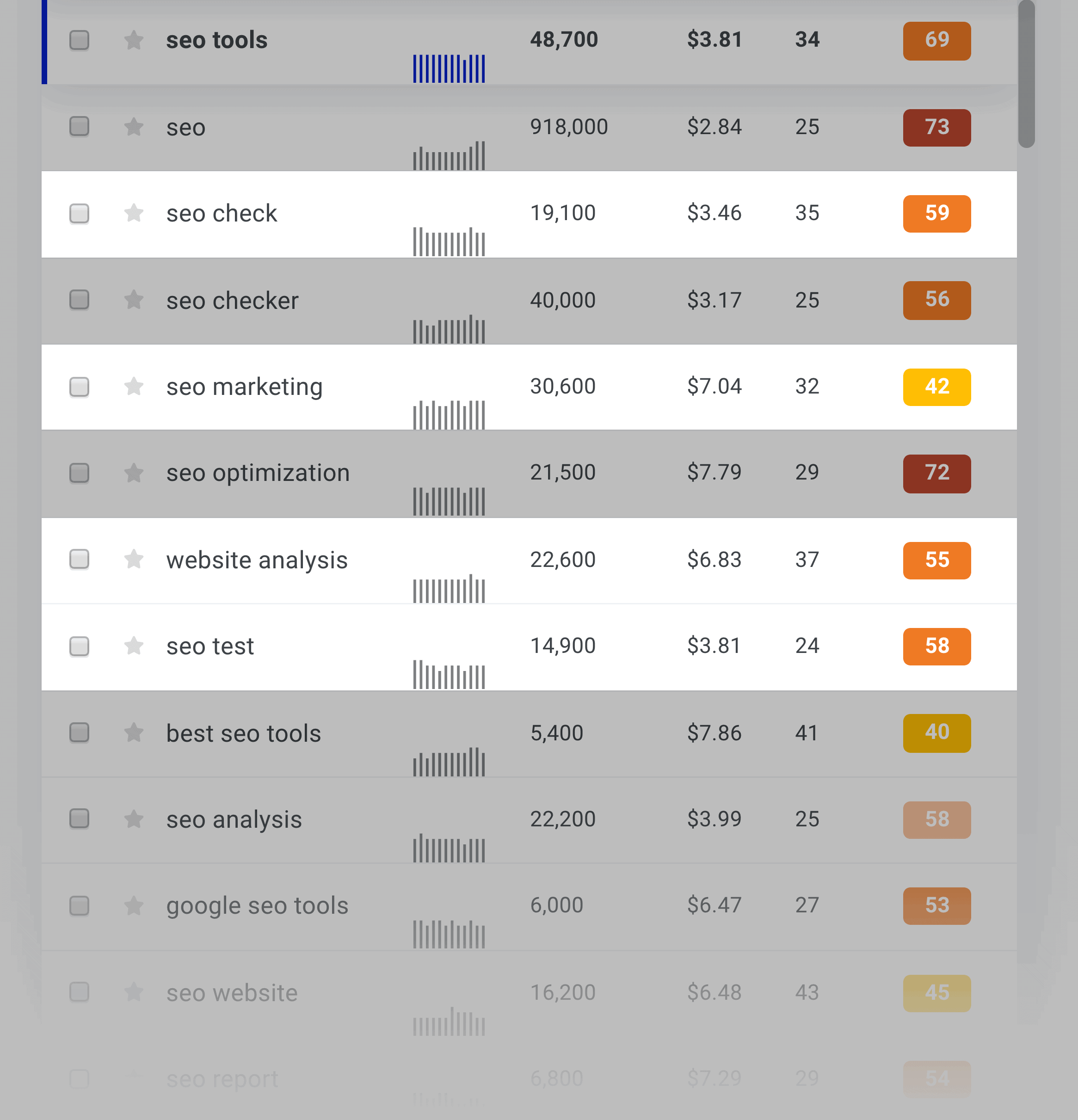
To me, these “lateral” keywords are super valuable. Why? Because they give you keywords and topics that you might now have been able to come up with on your own. And that your competitors may not know about.
So yeah, KWFinder does a good job at generating interesting keyword ideas. Which is great.
That said:
It doesn’t produce as many keyword suggestions as its competitors, like Ahrefs and SEMrush.
In fact, when we did a large-scale analysis of popular keyword tools, we found that KWFinder ranked at the bottom of the pack in terms of keyword suggestions.
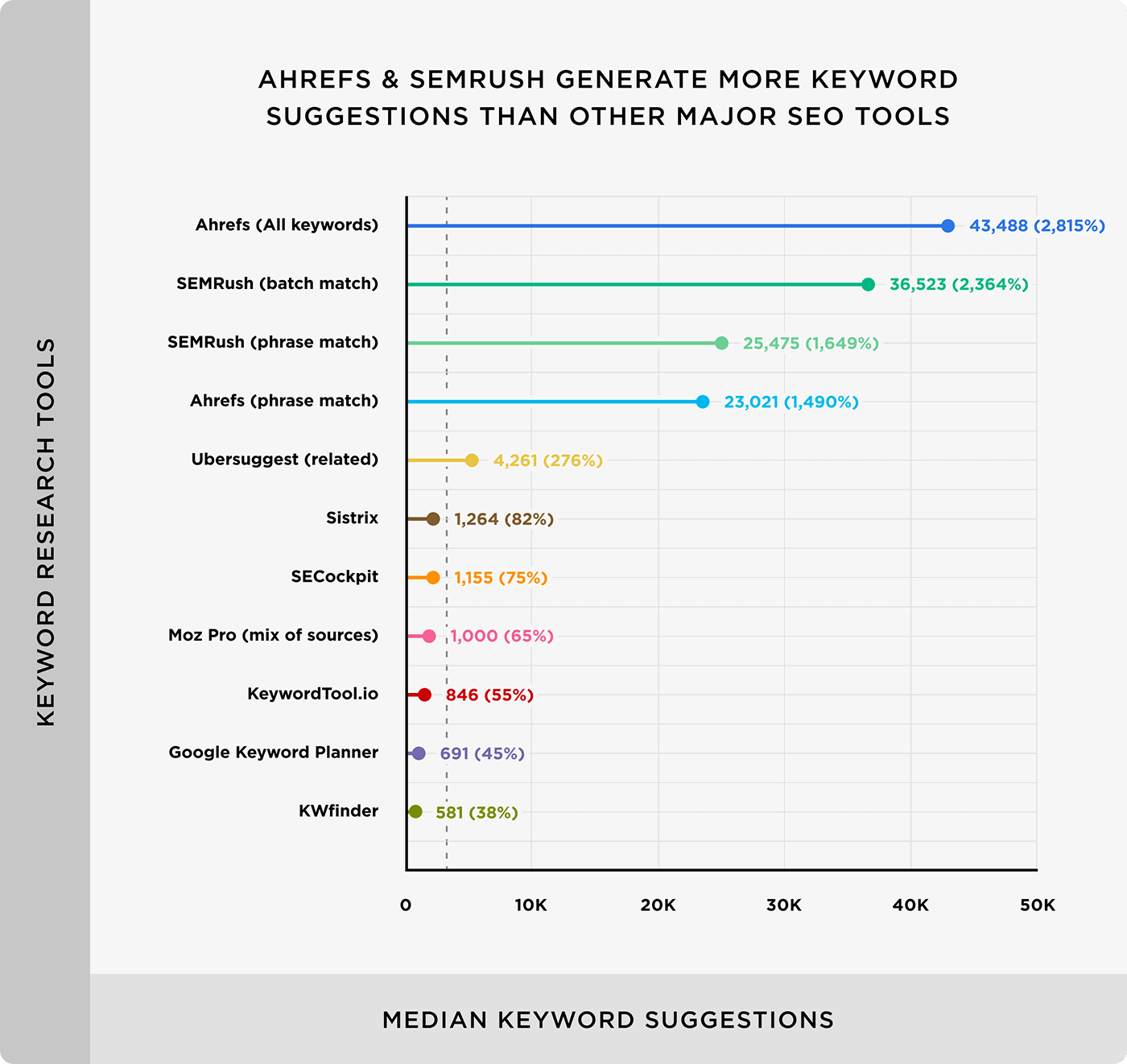
All in all, I’d say that KWFinder does a nice job at coming up with quality keyword suggestions. Even though it may not produce as many keyword ideas as some of the other tools on the market.
You can also search by domain. When you do, KWFinder will produce a list of keywords that the site ranks for in Google.
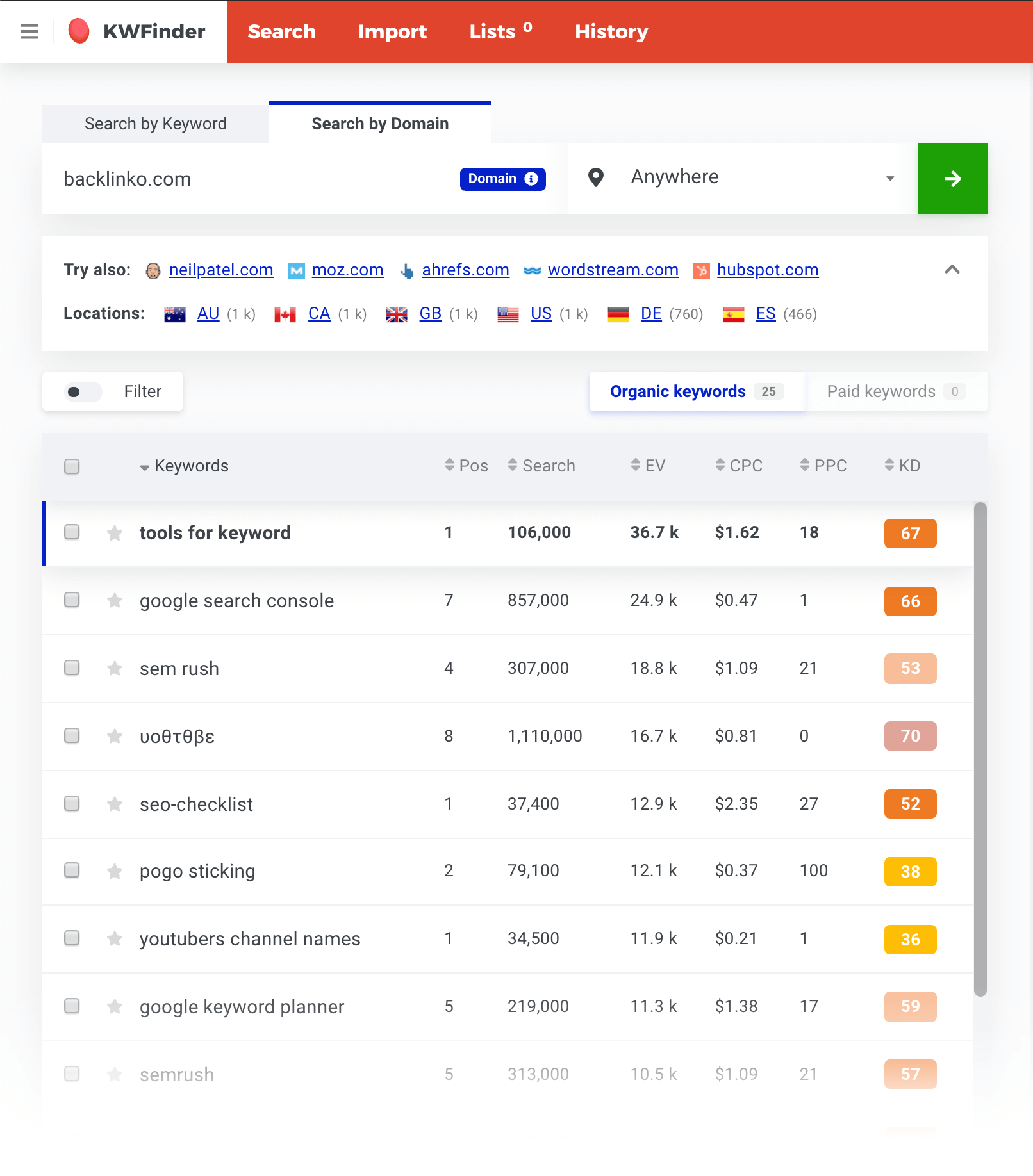
Again, this is now a standard feature in most keyword research tools. But it is a helpful way to come up with keyword ideas. And it works well here.
One more thing that I want to point out about KWFinder: its UI is REALLY good.
They’ve designed the tool to make it super easy to scan a list of keywords, get a SERP breakdown of each one and sort the list by different metics.
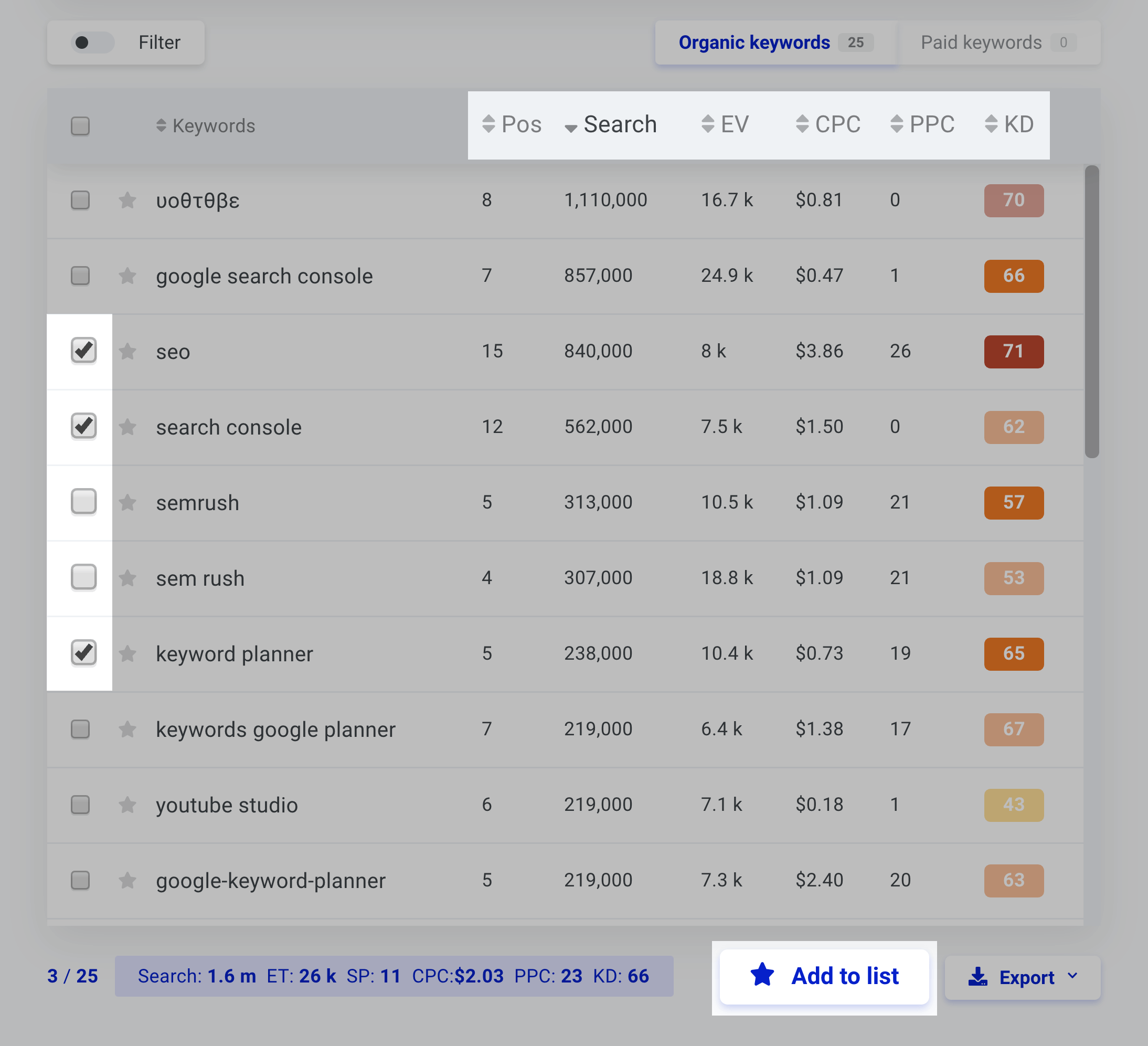
KWFinder even does little things, like give you a list of competing sites to analyze.
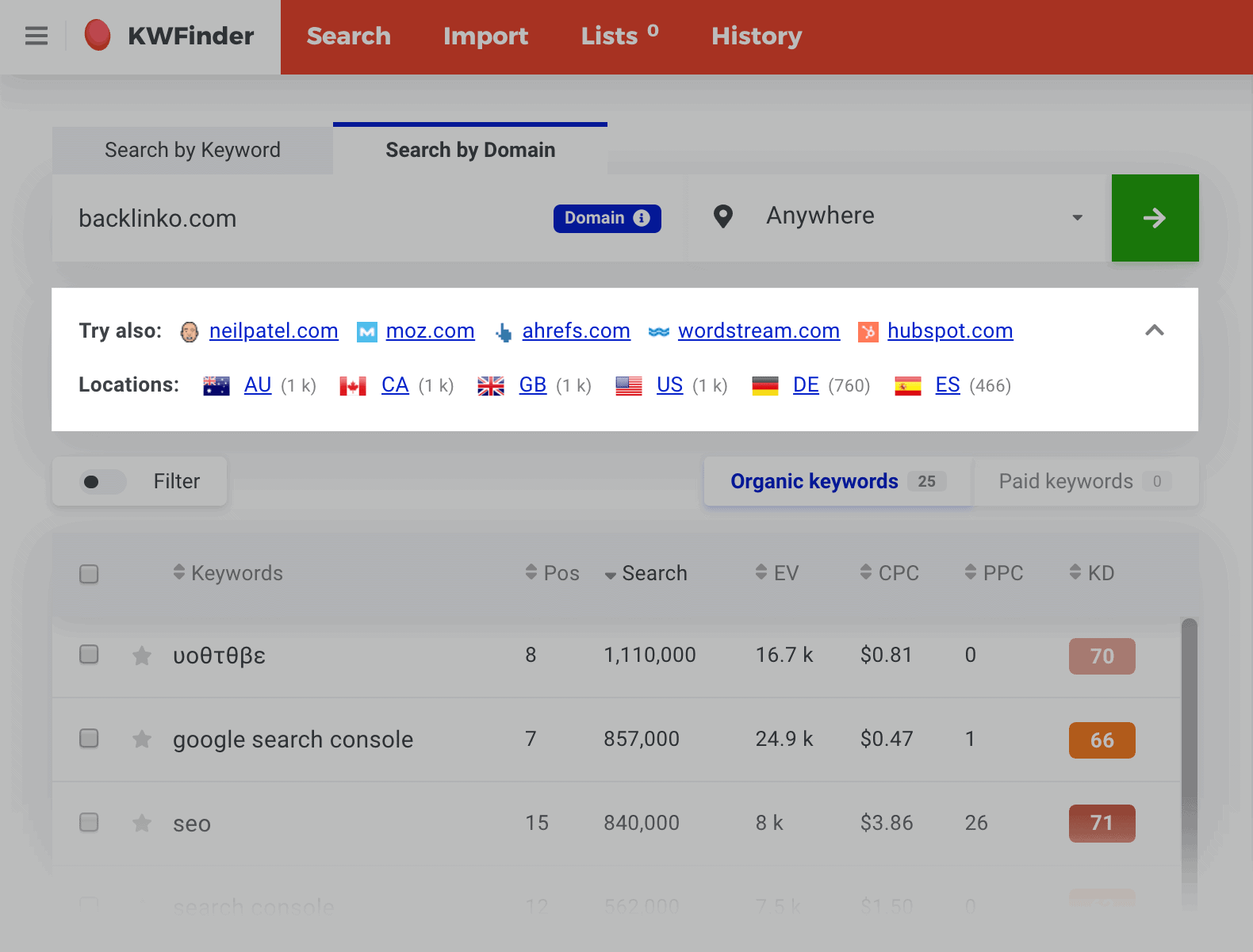
So yeah, I think that KWFinder is solid. It’s right up there with the keyword research tools that you’d find in Moz Pro and Ahrefs.
SERPChecker Keyword Difficulty Tool
SERPChecker is a detailed analysis of the SERPs for a given keyword.
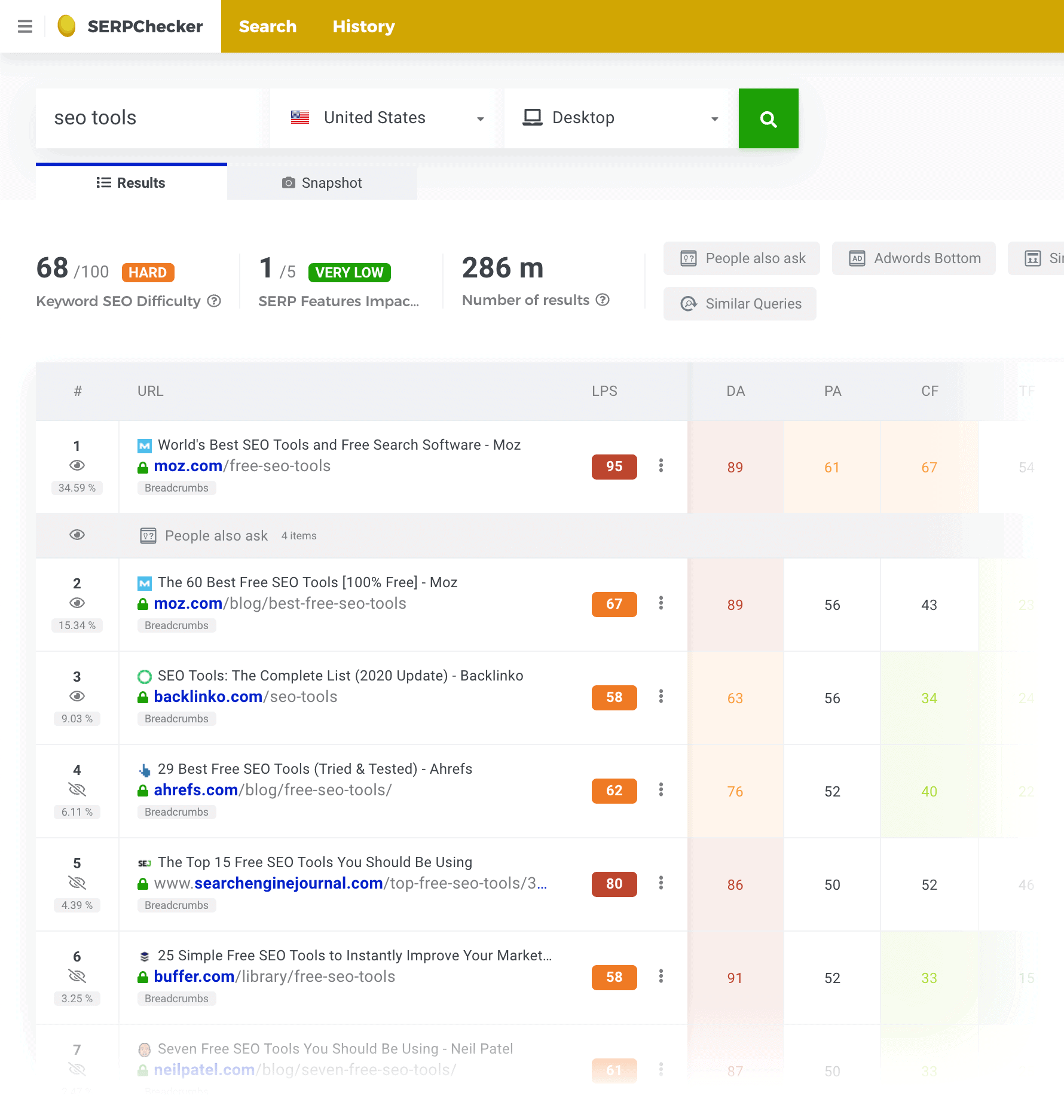
So besides the standard stuff (like a Keyword Difficulty score), you also get a full breakdown of every page that’s ranking for that keyword.
Specifically, you can see each page’s Page Authority, Majestic SEO Trust Flow, Alexa ranking and more.
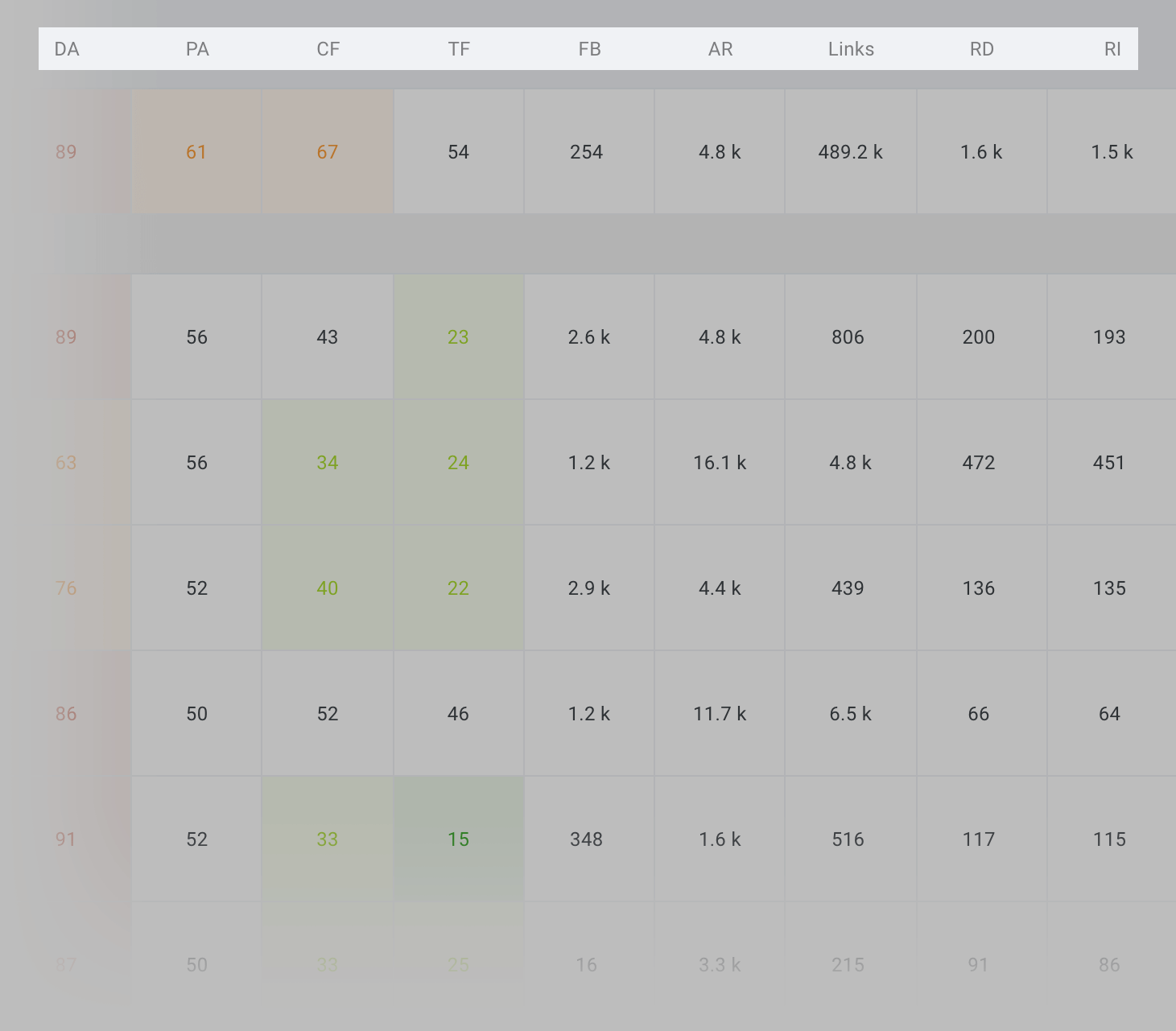
SERPChecker also has something called “SERP Features Impact”.
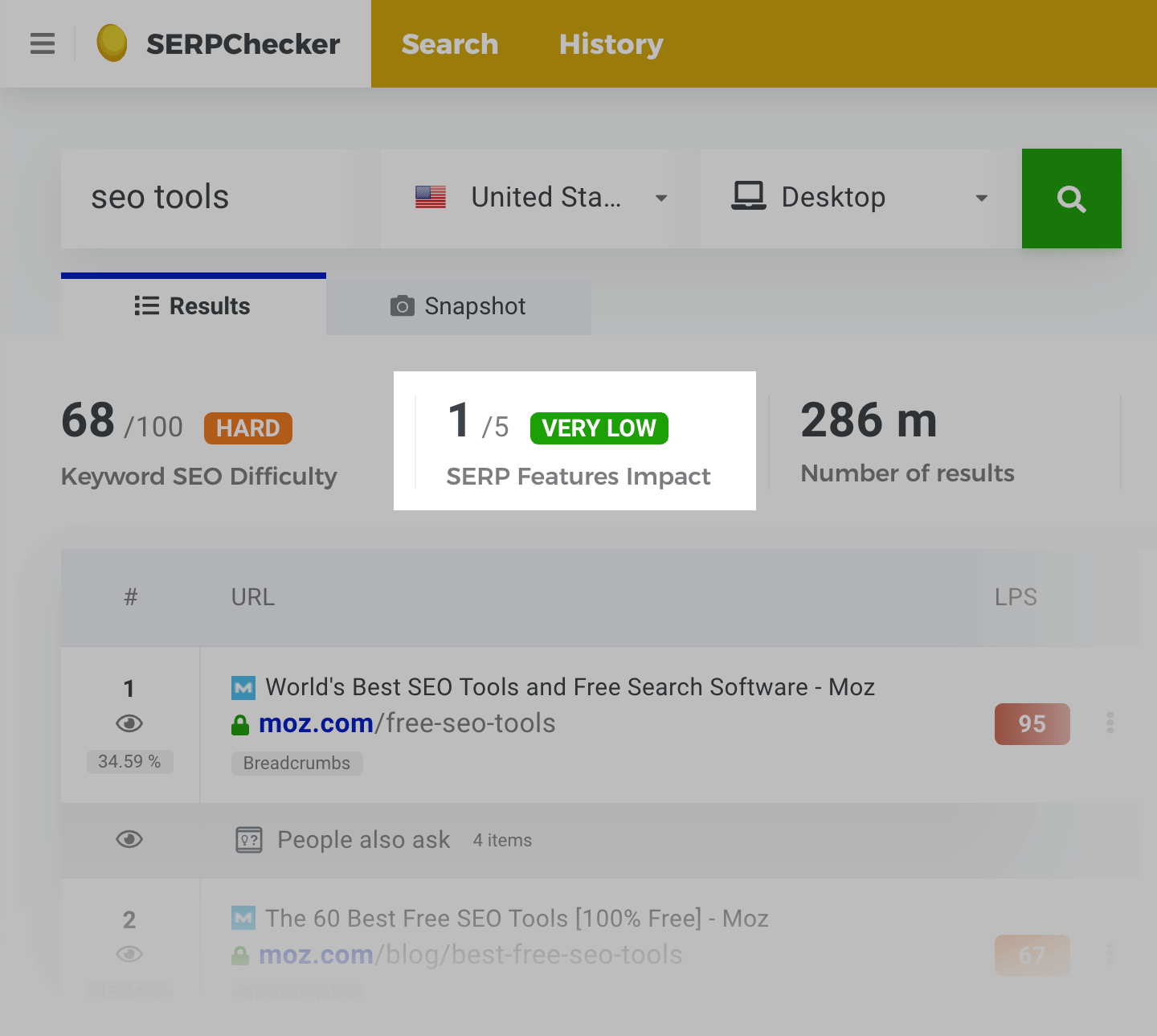
This is Mangools’ way of figuring out how crowded Google’s first page is. And how many clicks those features are likely to steal from the organic results.
So the more ads, video results and other SERP features are on the first page, the higher this number will be.
And if you hit the “snapshot” tab, you can actually see the first page results for that keyword.
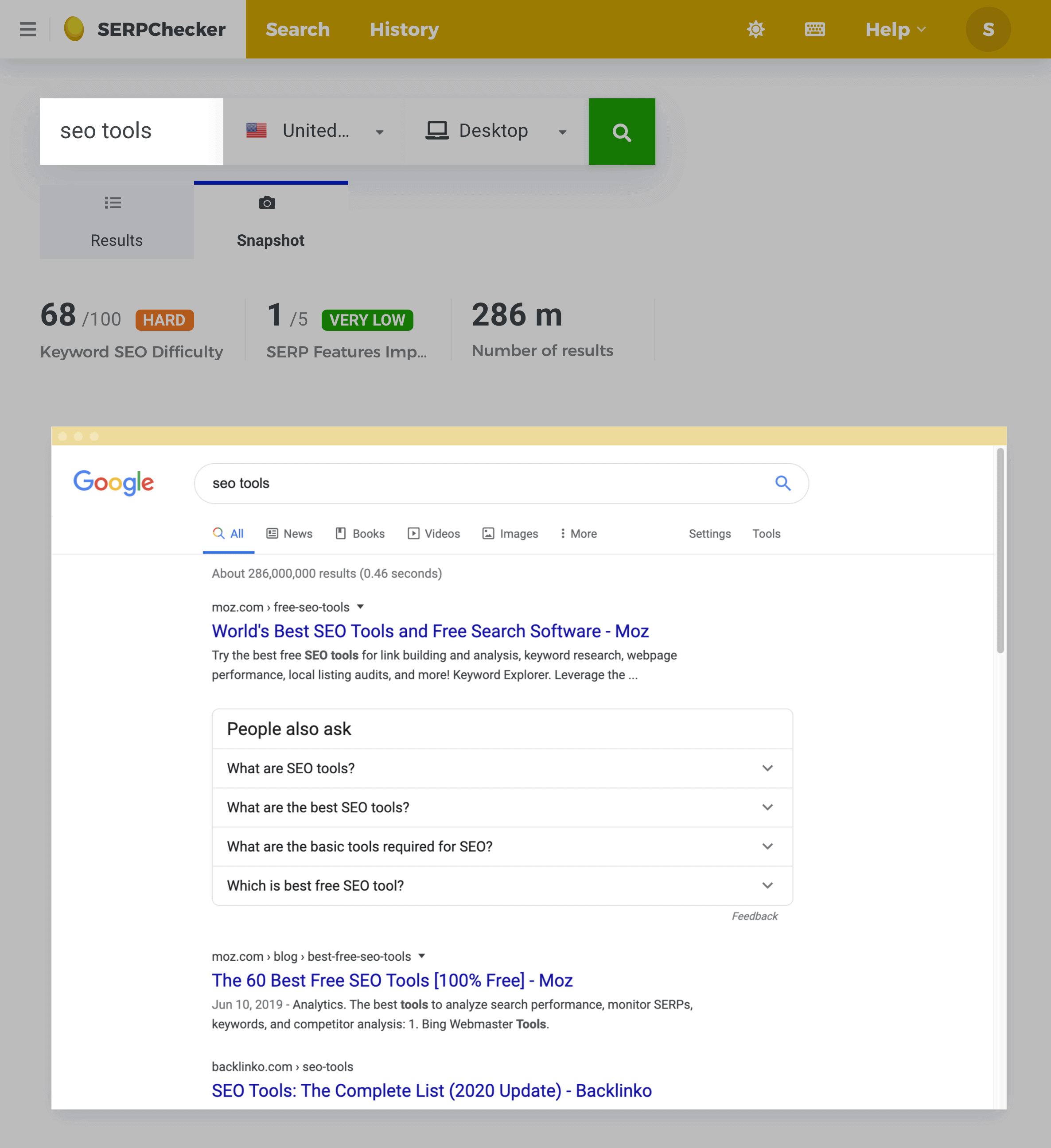
That way, you can flip back between the SERP breakdown and how the results actually look for real-life users.
This is a great little feature.
Sometimes when I do keyword research I have one tab open for the tool and the other tab on Google. That way, I can search for the keyword and SEE the search results like a user would.
But with the “Snapshot” feature, I can do that from within the tool.
Besides SERP analysis, you can also compare a page from your site with the SERPs.
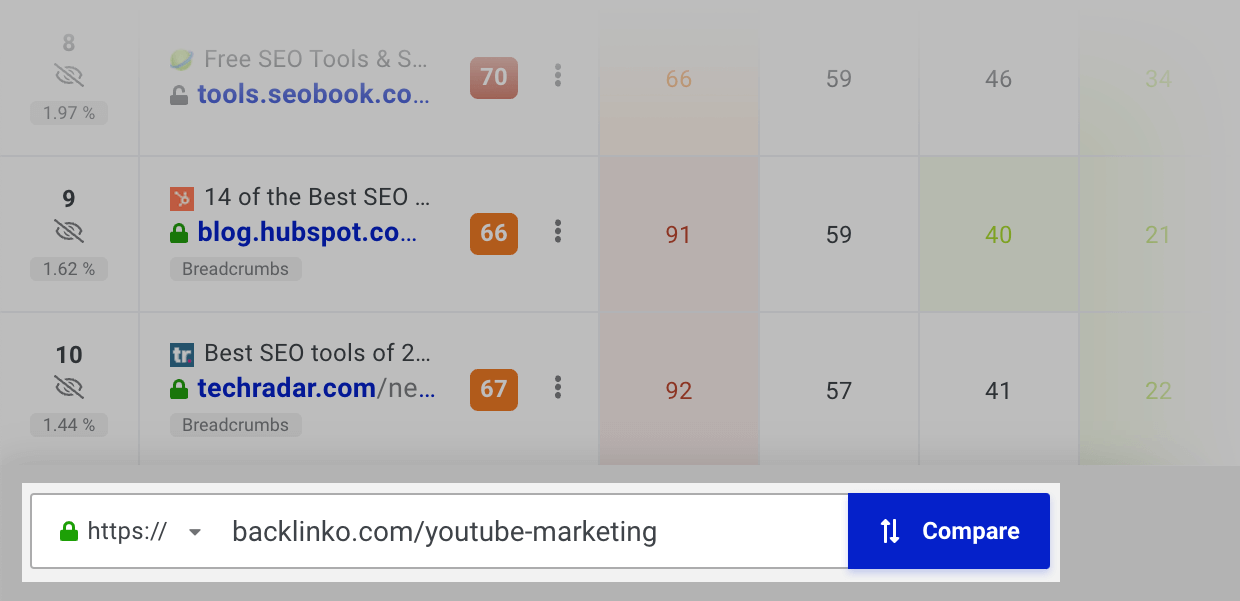
When you do, it will add your page’s metrics to the list. That way, you can easily compare your page with what’s already on the first page of Google.
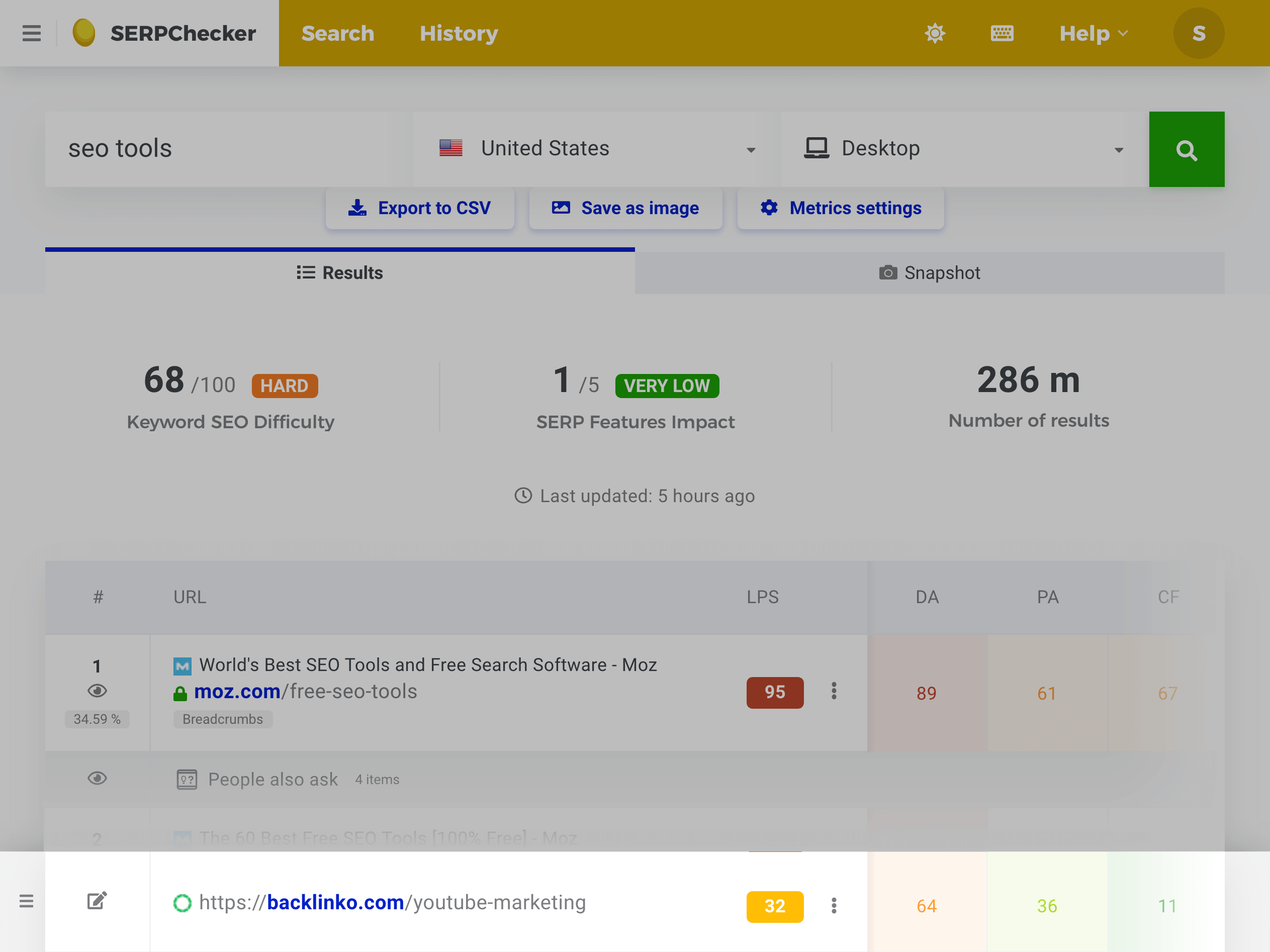
So yeah, I think that SERPChecker does a solid job of helping you size up the competition.
My one question is: why does this need to be a separate tool? I like breaking down the SERPs as much as the next guy.
But is it really necessary to see each page’s Trust Flow, Domain Authority, and Facebook shares? Is that really going to help me pick the best keyword from the list?
So yeah, I think this feature does some cool things. But I’m not sure how practical it is.
SERPWatcher Rank Tracker Tool
Honestly, there isn’t much to say about the Mangools.com rank tracking tool.
It’s not bad or anything. It’s just very similar to basically every other rank tracker on the market.
Like most rank trackers, you give it a list of keywords.
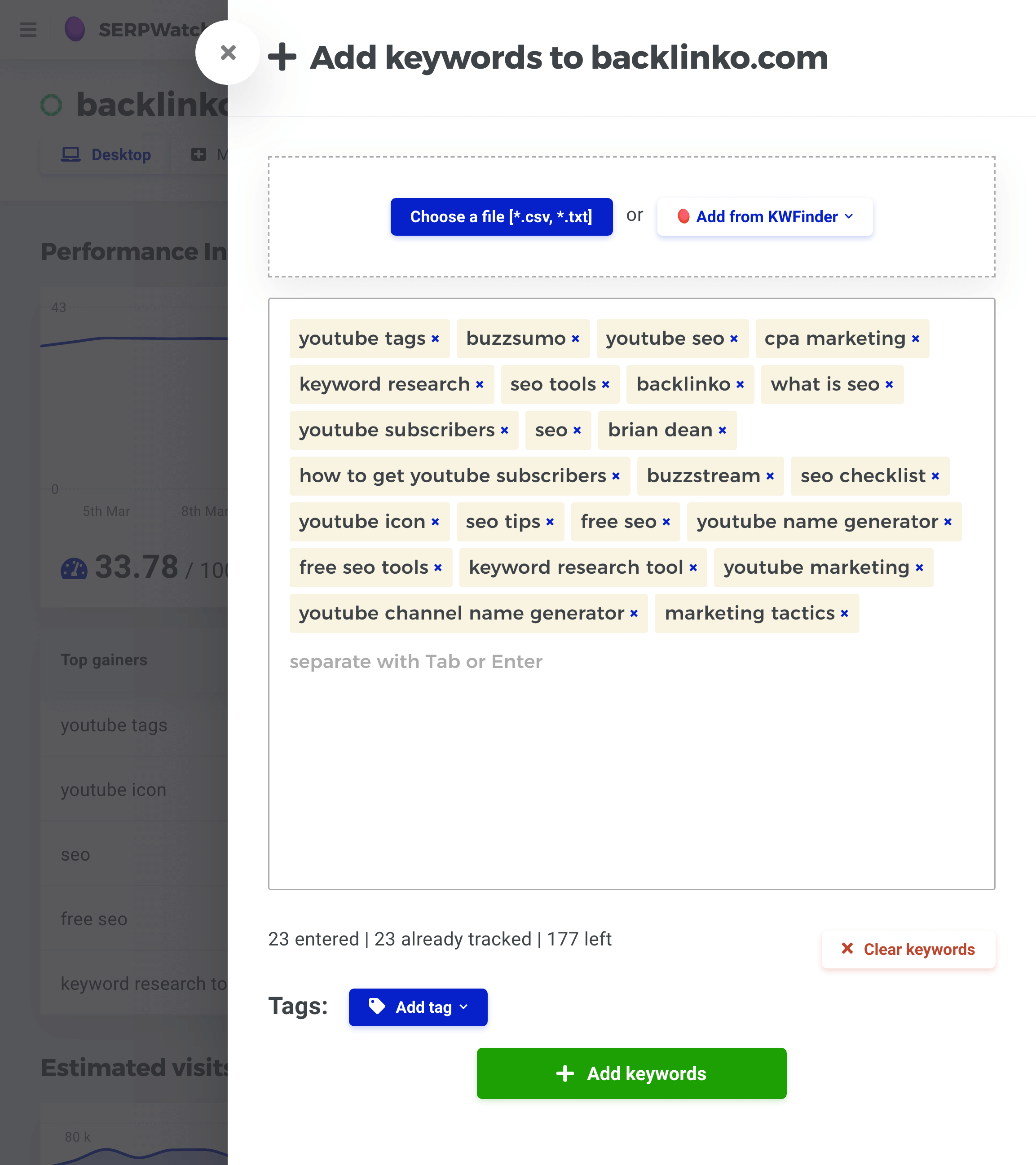
And it will track your search engine rankings for those terms:
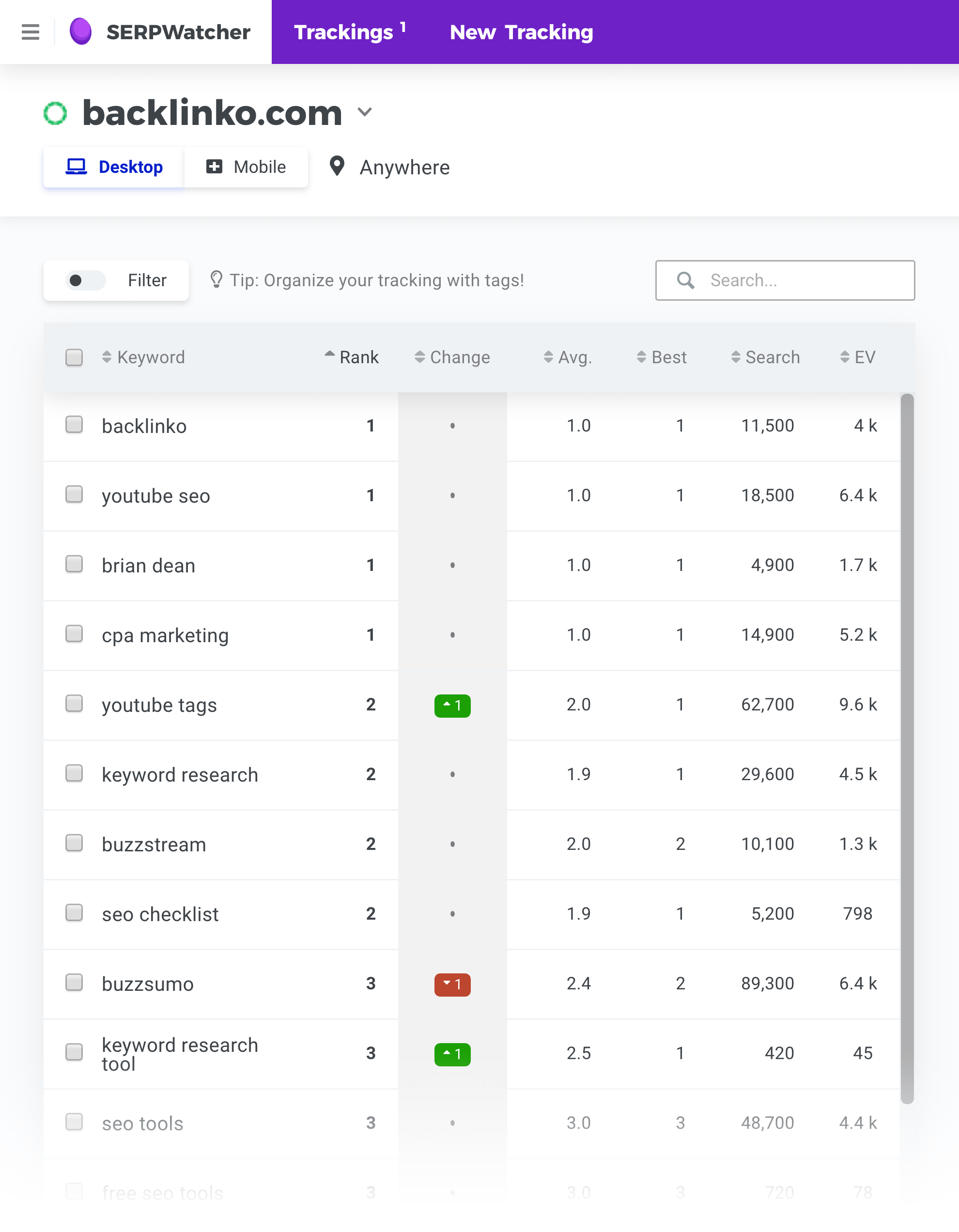
You can also tag keywords to mark important keywords… or keywords that fall under a certain category (like ecommerce category pages).
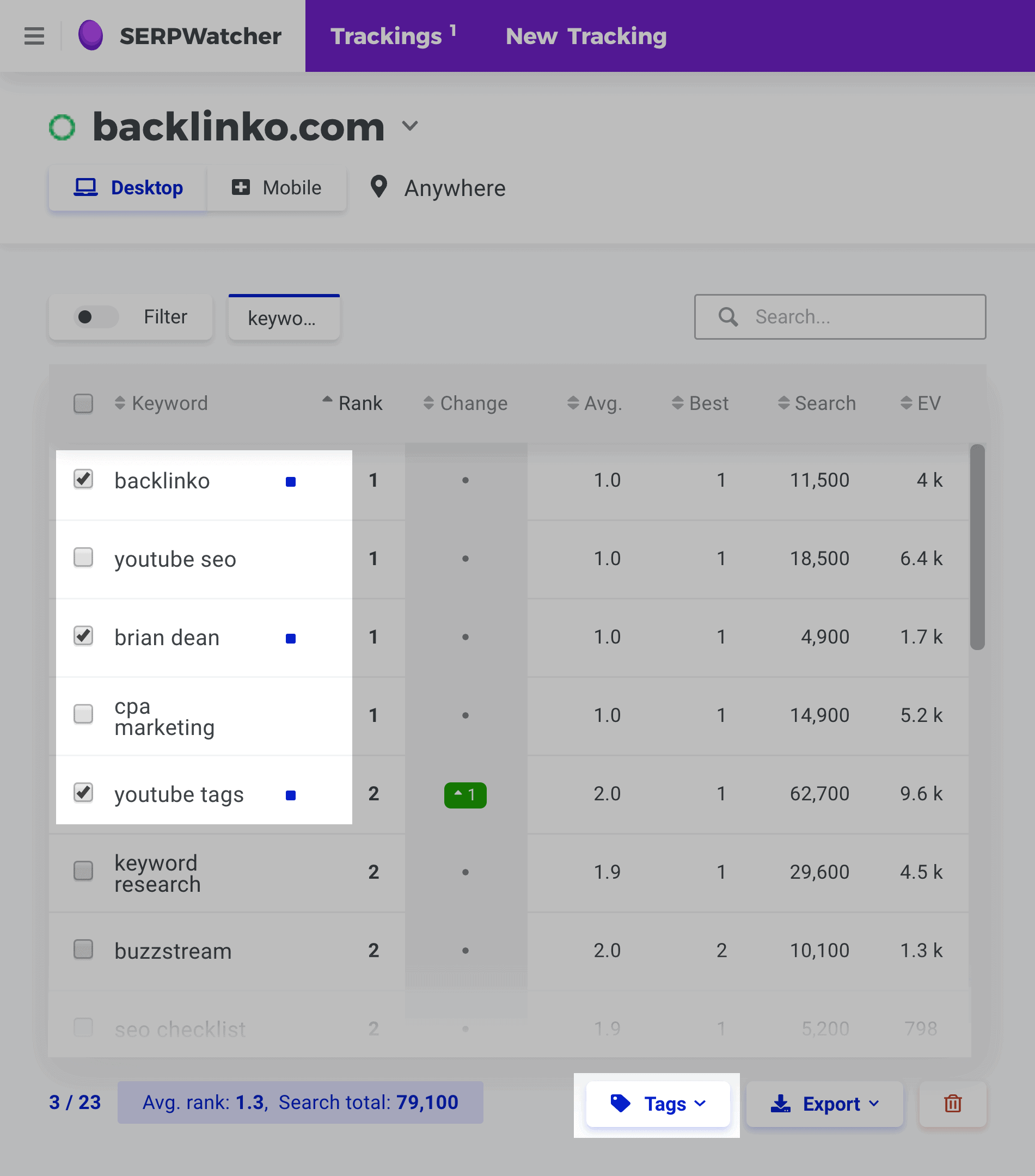
Overall, this is a standard feature for keeping an eye on keyword rankings.
LinkMiner Backlink Analysis Tool
LinkMiner is Mangools’ backlink checker.
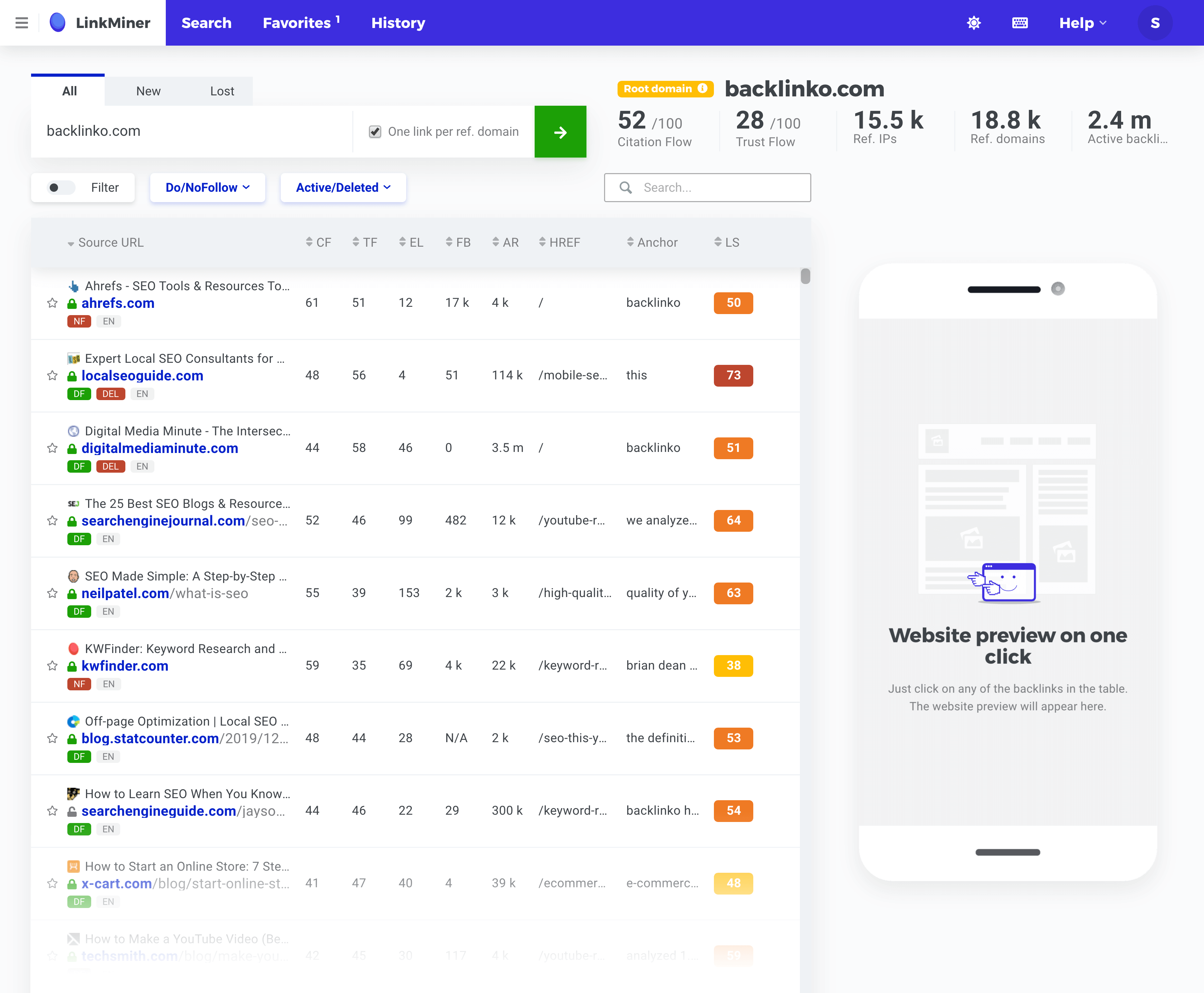
Unlike Moz, SEMrush and Ahrefs, Mangools doesn’t have its own link index. Instead, they use the Majestic SEO API.
To me, this is actually a good thing. I’ve seen lots of smaller tools try to build their own link index. Which is VERY hard and VERY expensive. And their backlink checkers end up being pretty crappy.
So yeah, even though Majestic SEO’s link index isn’t my favorite. It is solid.
Which means that you can trust the link data that you get in Mangools.
Like most link analysis tools, you can see a list of backlinks pointing to an entire domain or a specific URL.
And sort the results based on nofollow/dofollow, Citation Flow, or Alexa ranking.
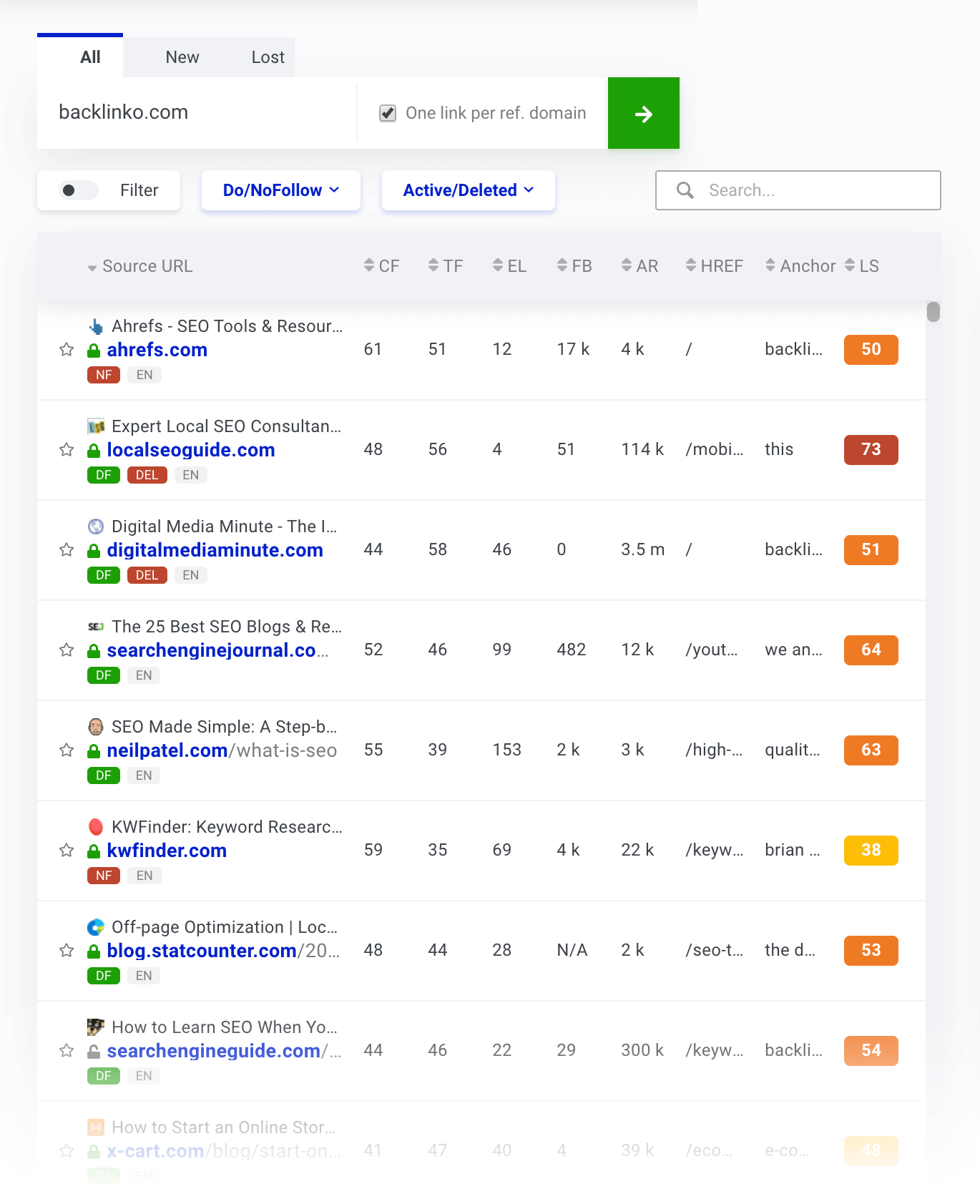
One very unique feature in LinkMiner that I haven’t seen in any other tool is their “Website Preview”.
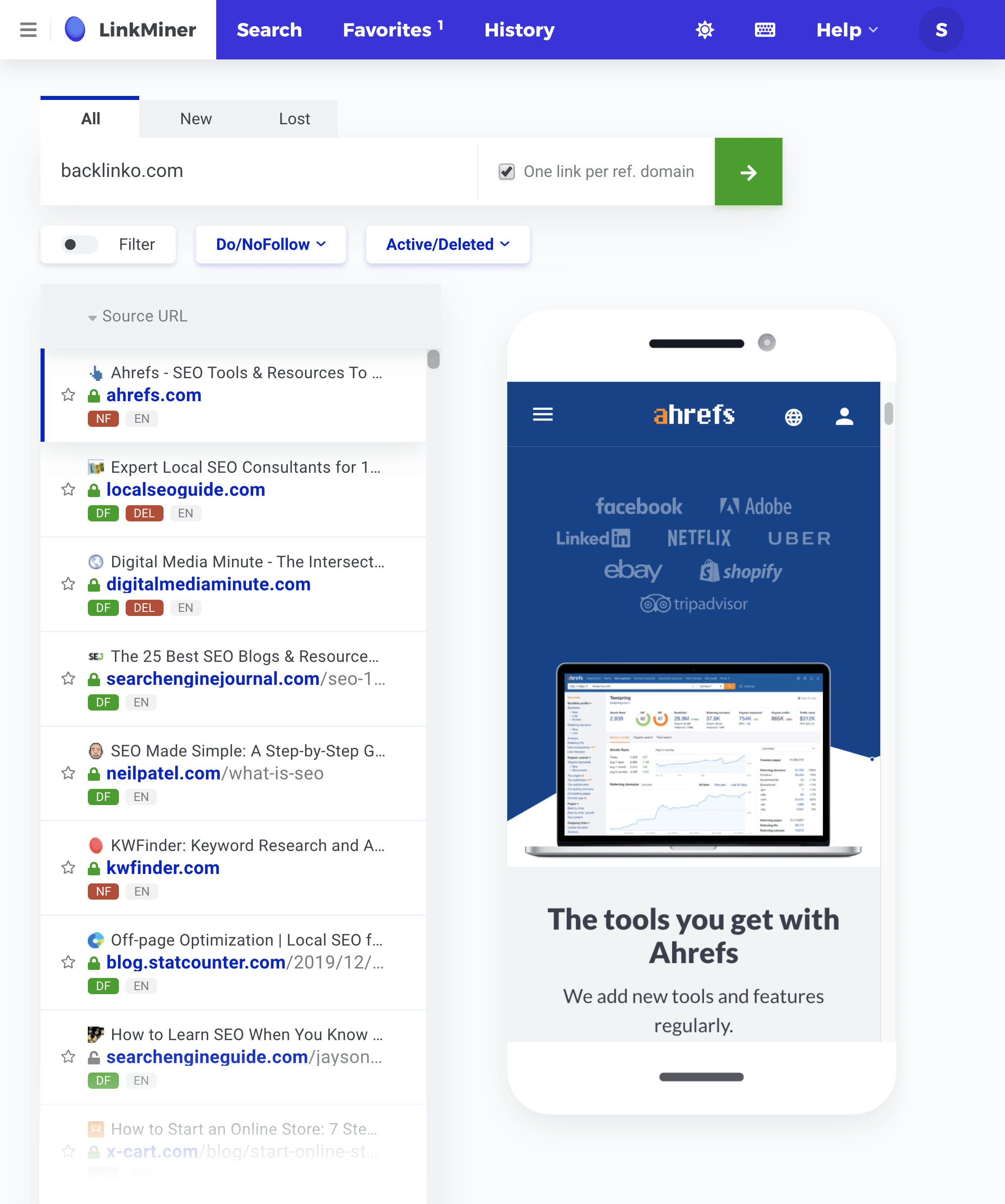
This shows you a snapshot of the page that’s linking to the site that you typed in. It even scrolls down and highlights where that link is on the page.
Why is this useful?
Well, it’s one thing to know that page A links to page B. But unless you look at the page, you can’t always know WHY they linked to that page.
For example, you can see that Backlinko has a nice link from Copyblogger.
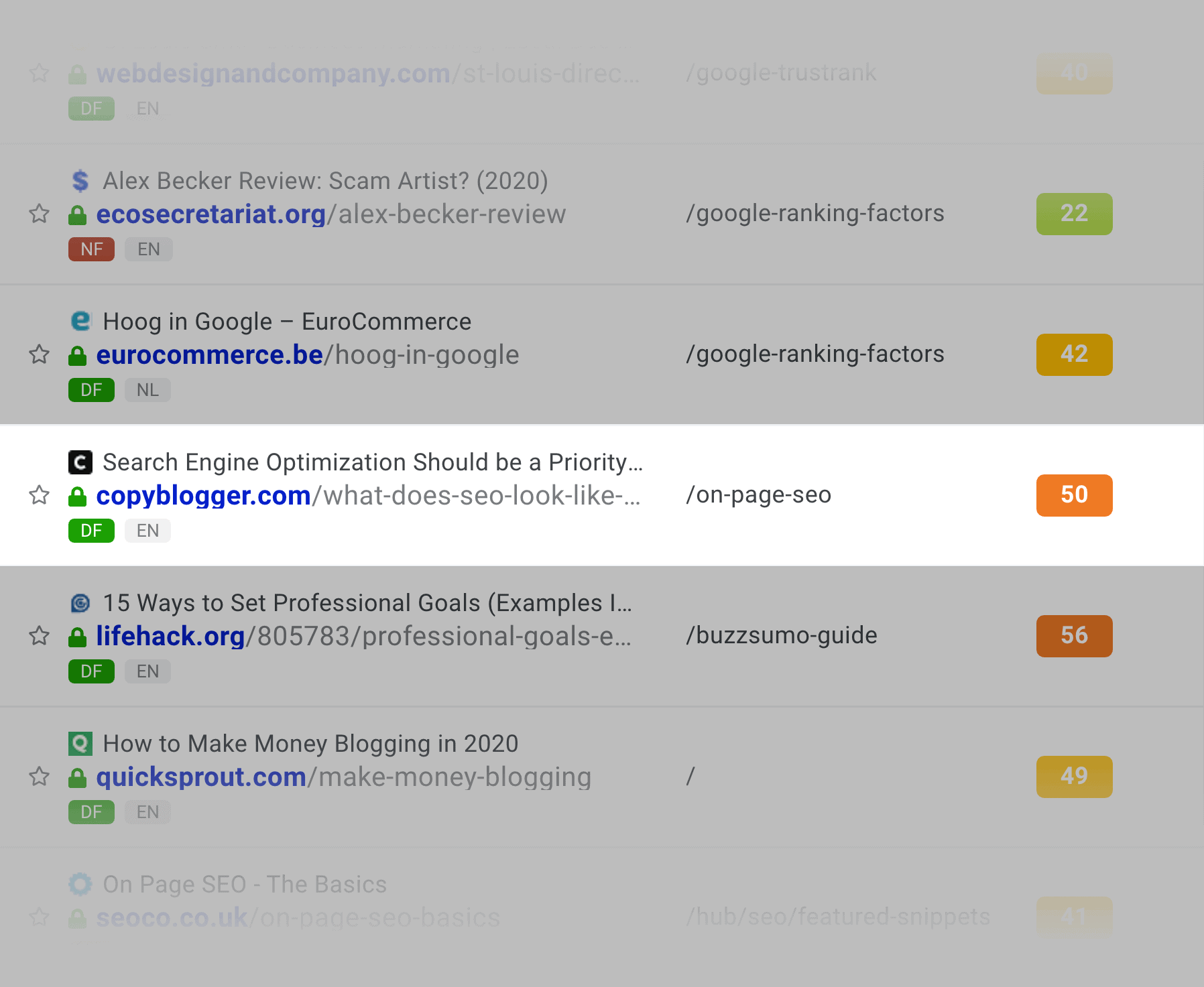
But it’s hard to see why or where they linked to me.
And when you look at the preview, you can see that the link came from a podcast.
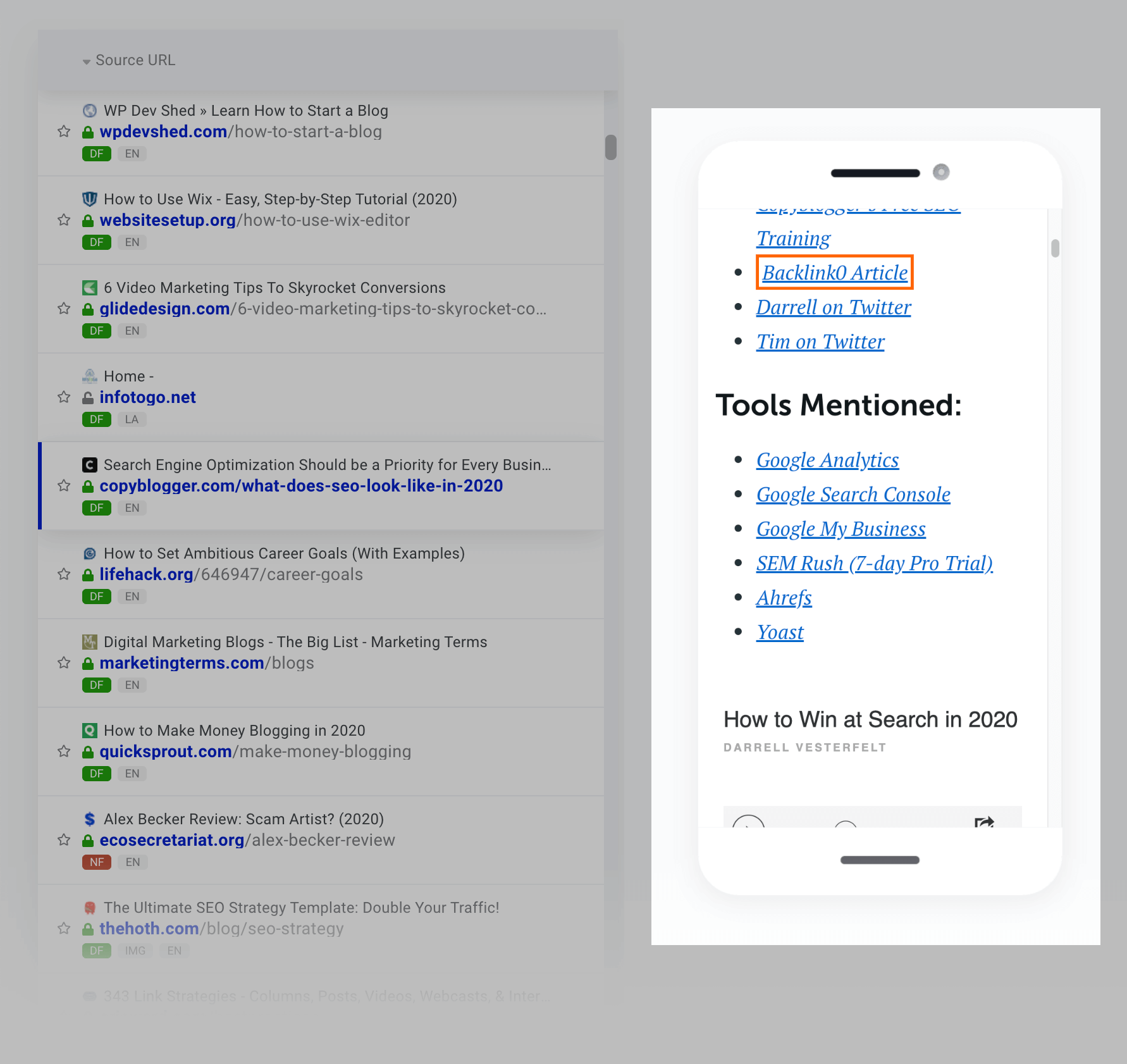
So yeah, because Mangools uses Majestic SEO link data, their backlink metrics are solid. And the site preview feature is really useful and unique.
SiteProfiler SEO Metrics Breakdown
Here’s how this feature works:
Pop a domain into the tool.
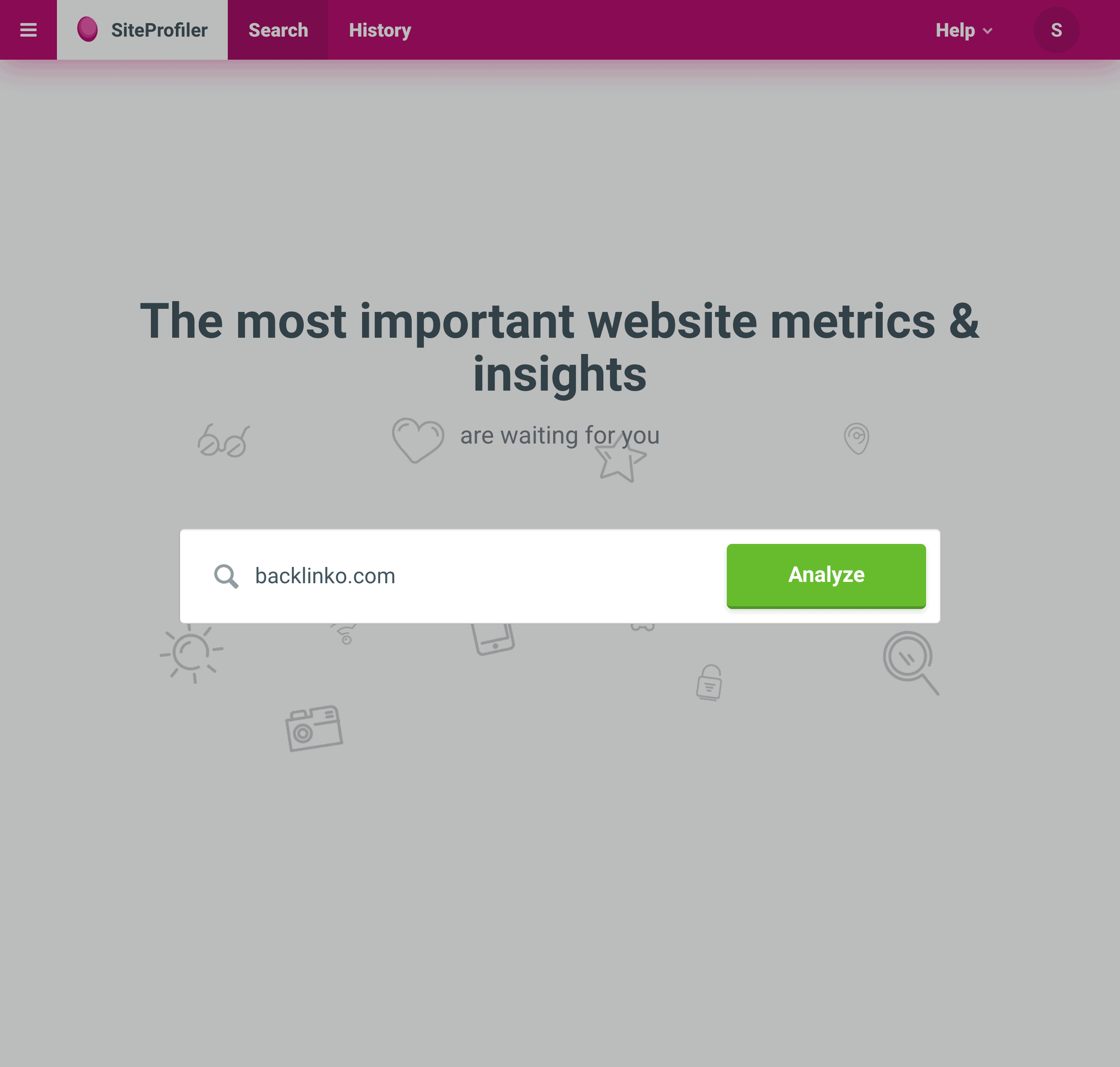
And get a bunch of metrics (like the number of backlinks and total Facebook shares) on that site.
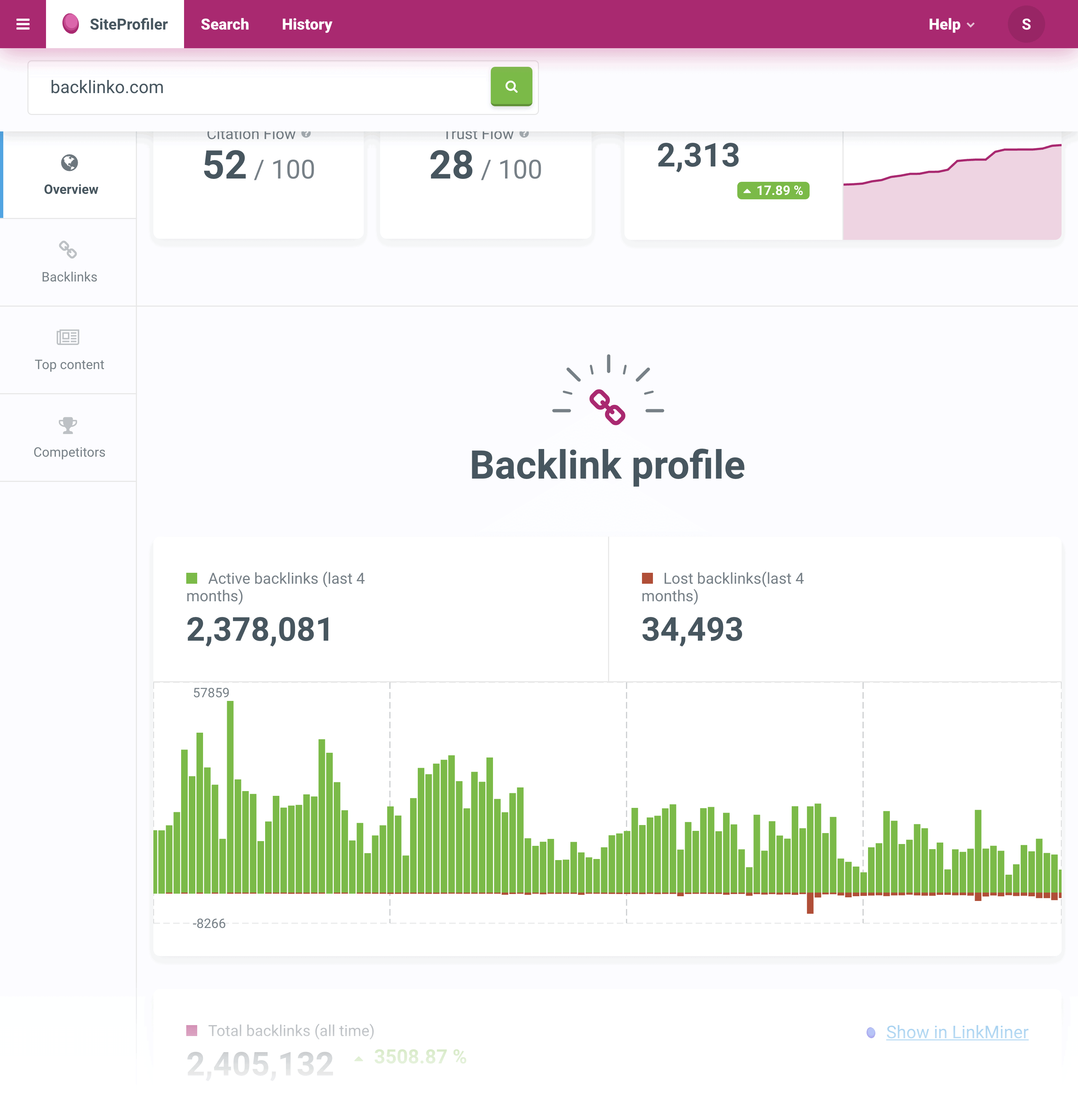
That’s basically it.
I really don’t get why this feature exists. It’s mostly just data that’s already integrated into other features in the Mangools platform.
Sure, you do some unique things, like see a site’s top content.
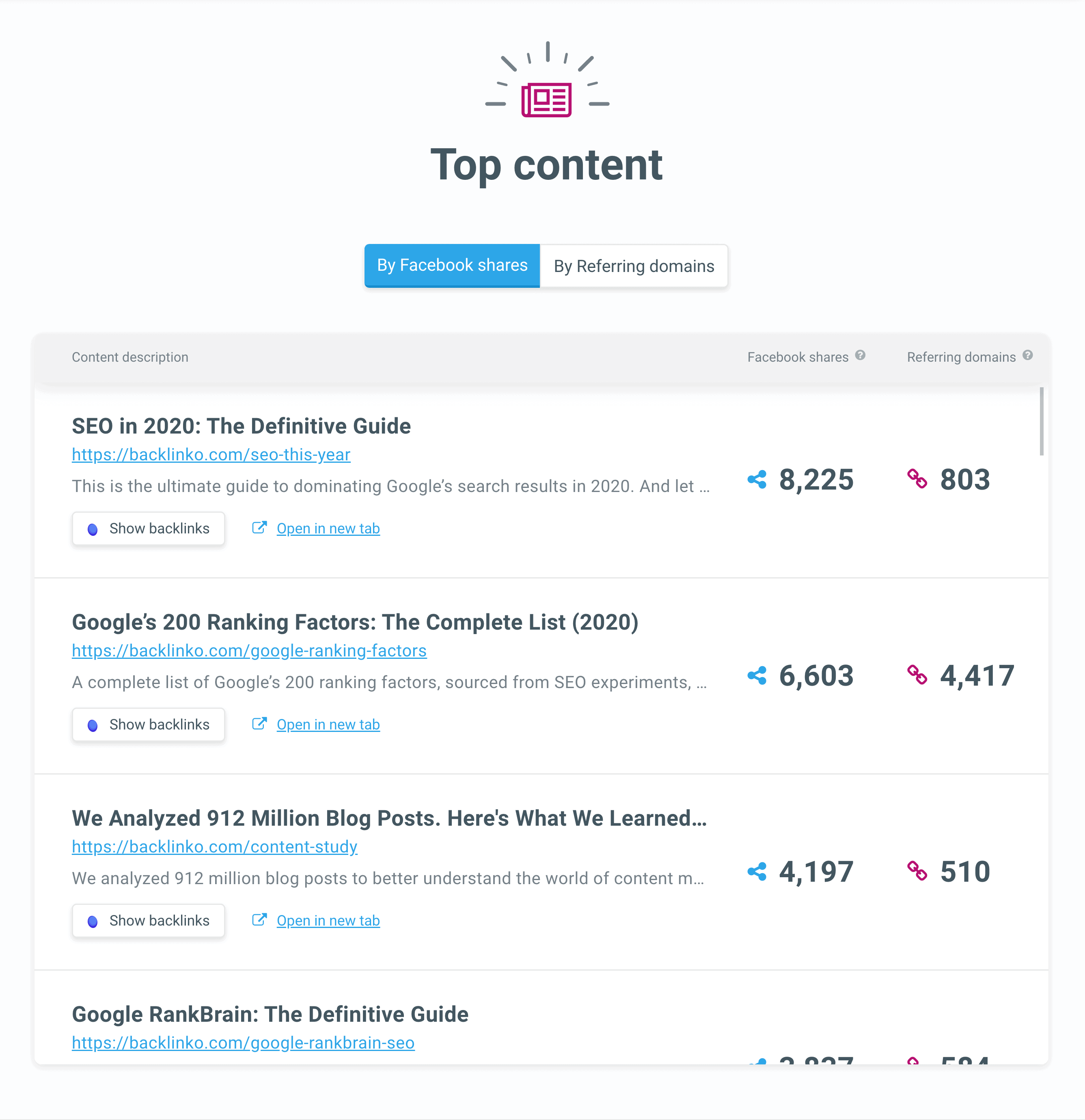
But in my opinion, that’s something that belongs in their LinkMiner app. Not as a separate feature.
Overall, I don’t think this feature adds a whole lot of value.
Mangools Browser Extension
Mangools also has a Chrome and Firefox browser extension.
When you have a paid account, you can break down a site’s link authority, backlinks and more.
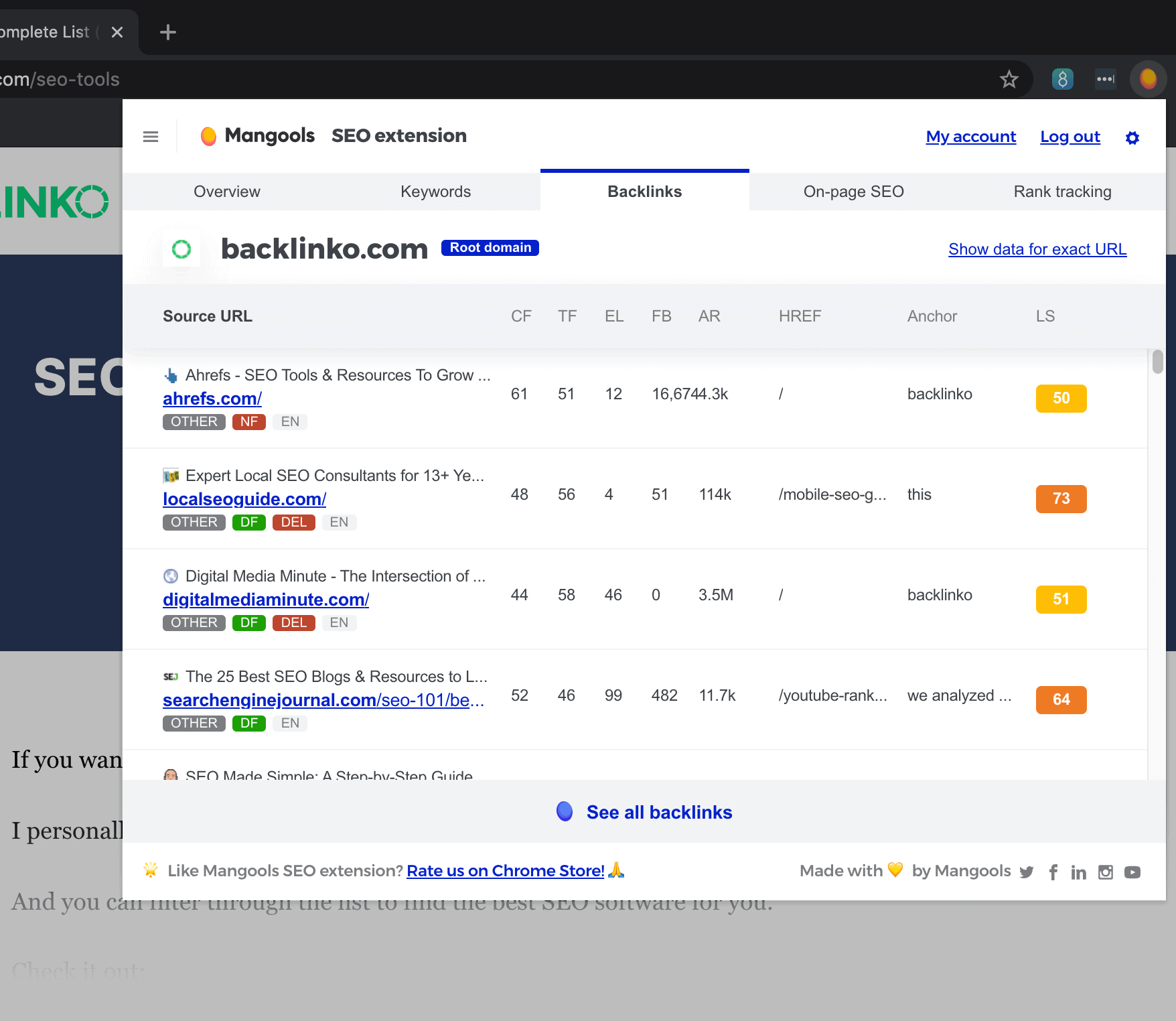
This is great if you run into a page or site that you want to break down. But you don’t want to open Mangools, click on “LinkMiner”, copy and paste the URL, etc.
This isn’t a killer app or anything. Most major SEO tools have a toolbar or browser extension.
But considering that Mangools is quite a bit cheaper than most other tools (more on that later), it is a nice little bonus to have a browser extension.
Mangools Support
I wanted to see how the customer support in Mangools compared to other SEO tools.
For this test, I decided to ask a somewhat complicated question: how they calculated their “SERP Features Impact” score.
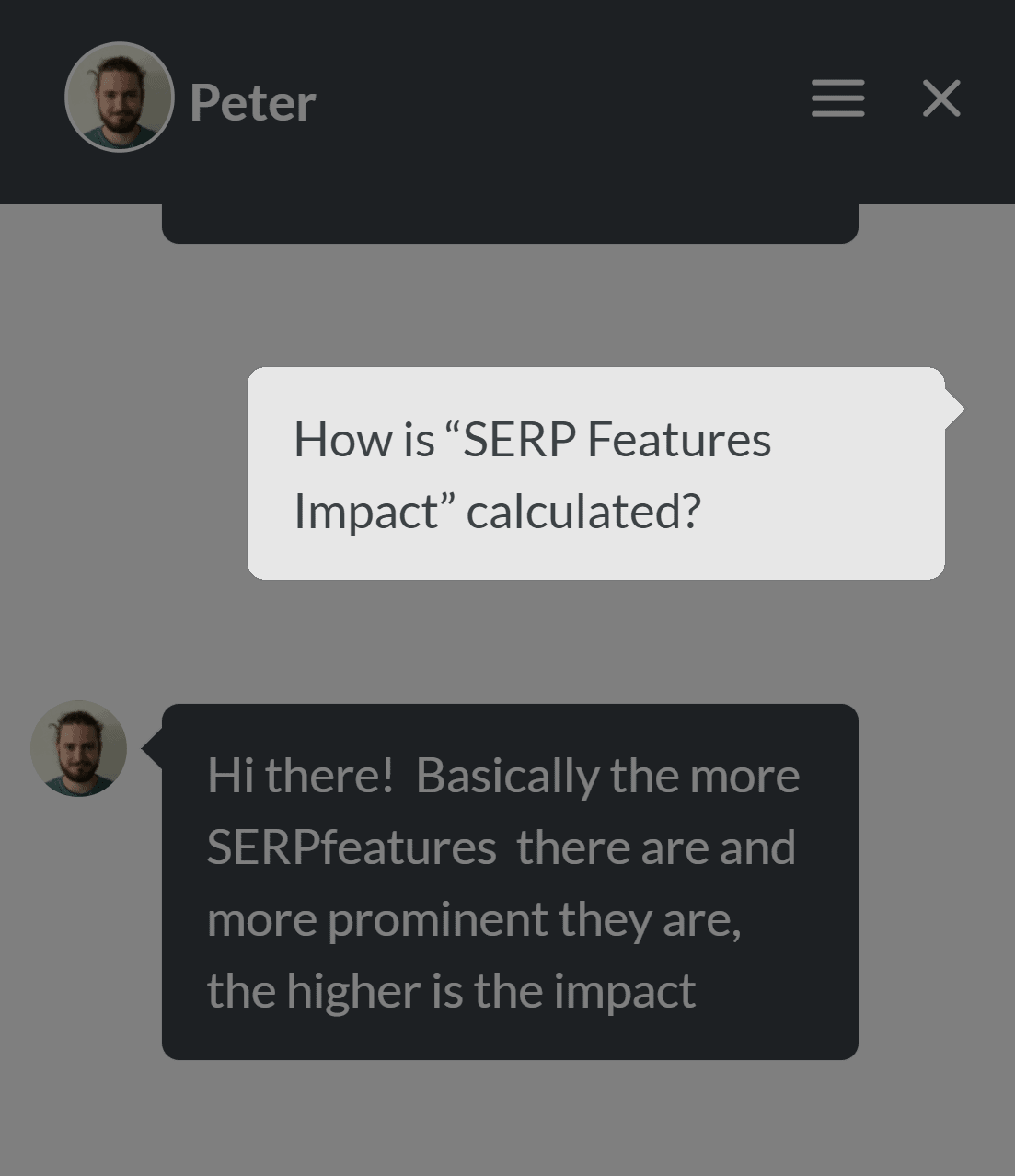
And because Mangools has live chat, I got a helpful reply within seconds.
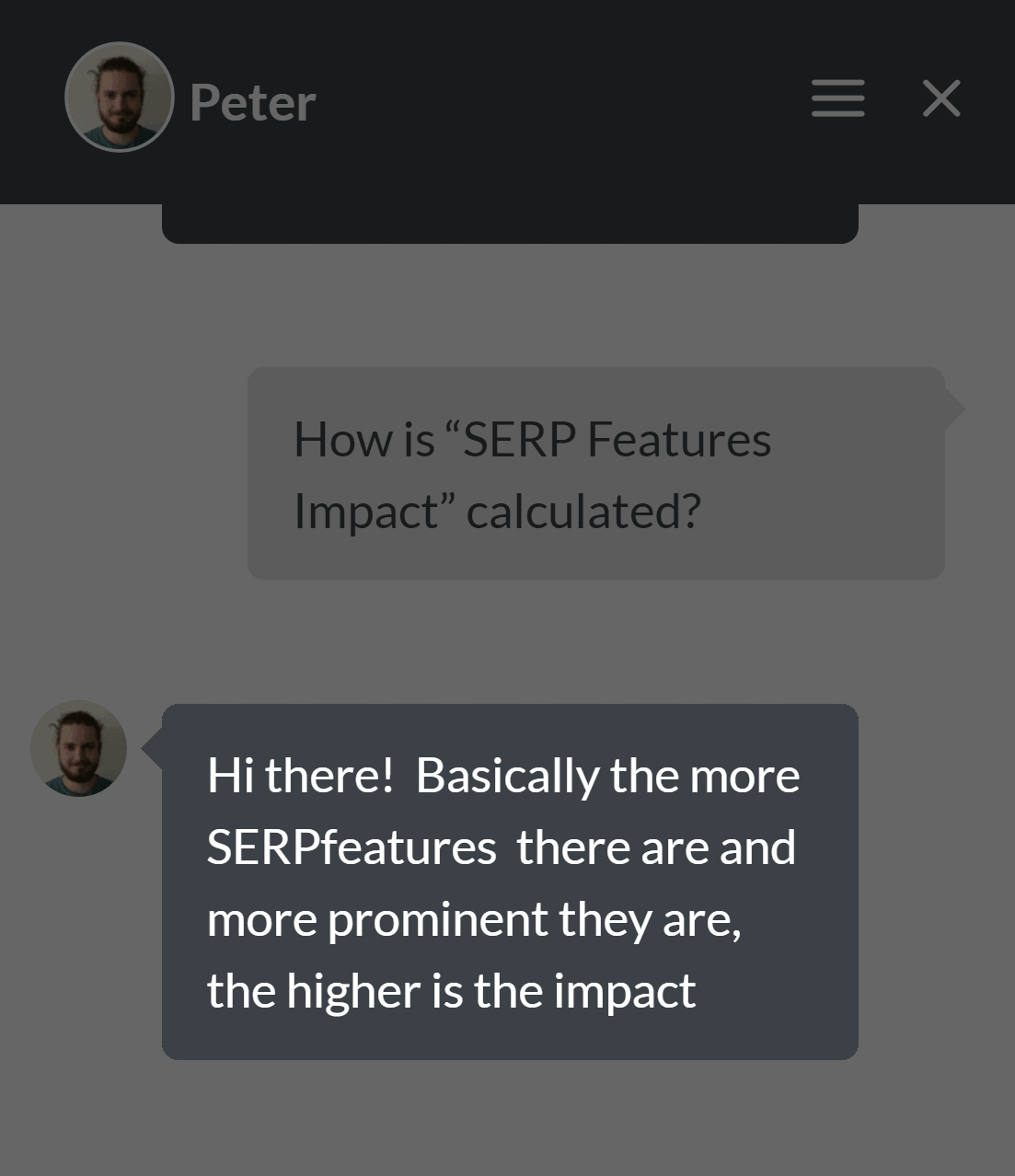
I even asked a followup question. And Peter quickly replied to that too.

So yeah, live chat is always a bonus. And the support that I received in the Mangools live chat was top notch. So I give their support an A+.
Mangools Pricing
Here’s the pricing breakdown for each Mangools paid plan:
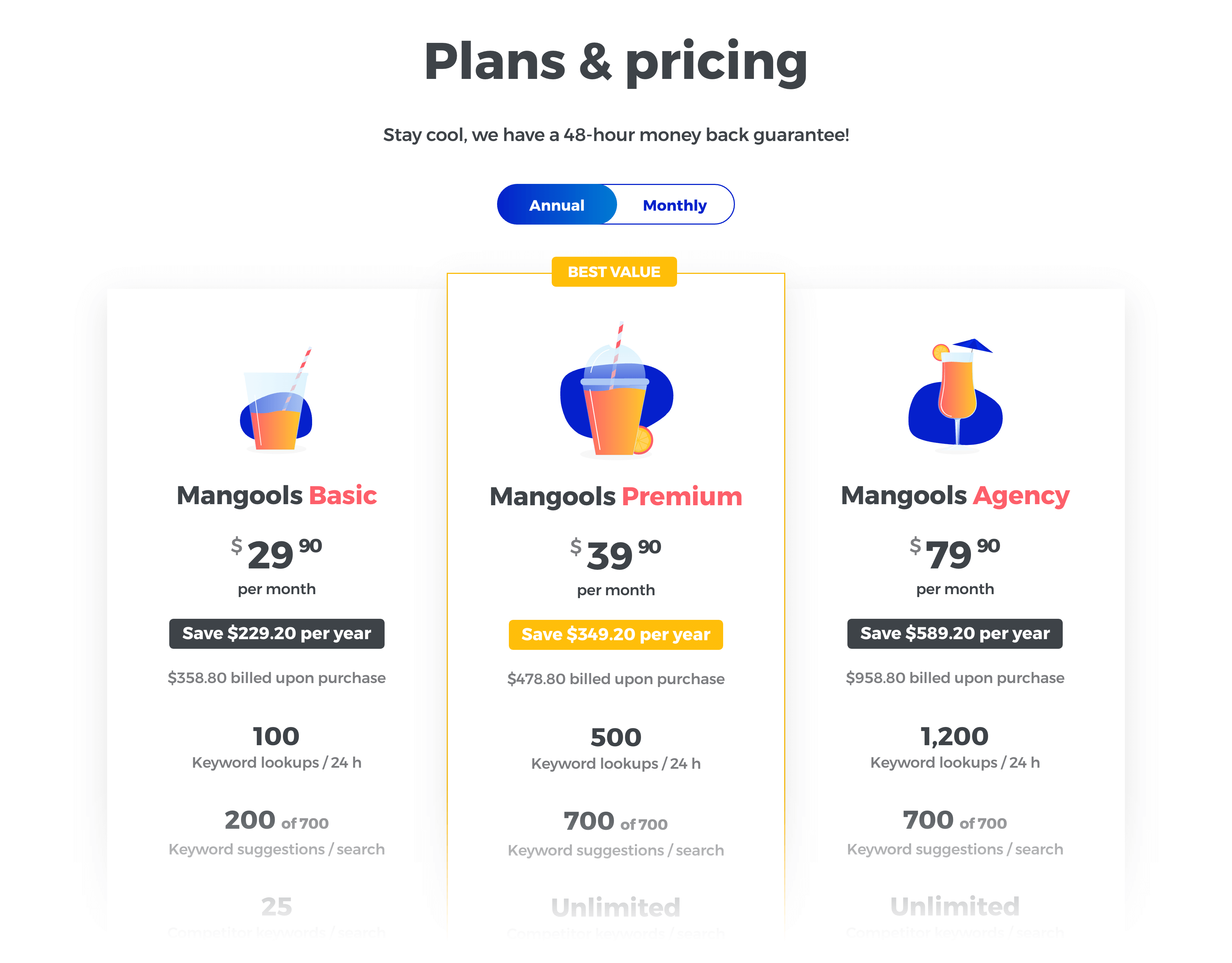
As you can see, their pricing ranges from $30-$80/month.
You get access to the same features no matter what plan you go with. The only difference is the number of searches, SERP lookups, tracked keywords and backlink rows that you can analyze.
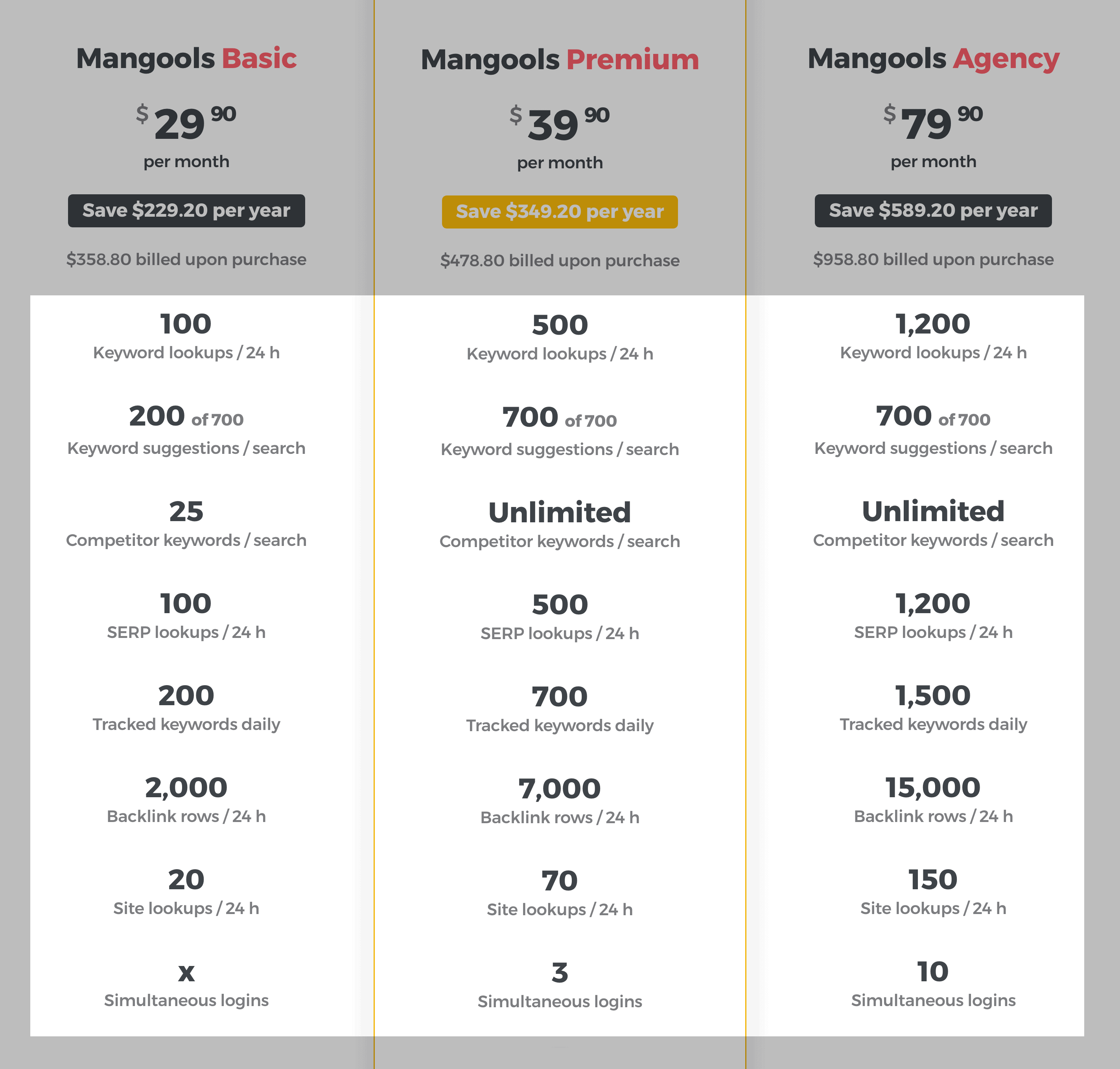
(They also have annual plans where you can save about 40% vs. monthly billing)
If you run a single site, Mangools Basic may be enough for you. But if you’re an agency owner or someone that has a portfolio of different sites, then you probably want to go with the Mangools Premium or Mangools Agency plan.
How does Mangools pricing compare to other tools?
| Service | Monthly price (USD) | Yearly price (USD) |
|---|---|---|
| Mangools – Basic | 49.00 | 358.80 |
| Mangools – Premium | 69.00 | 478.80 |
| Mangools – Agency | 129.00 | 958.80 |
| Ahrefs – Lite | 99.00 | 990.00 |
| Ahrefs – Standard | 179.00 | 1790.00 |
| Ahrefs – Advanced | 399.00 | 3990.00 |
| Moz Pro – Standard | 99.00 | 948.00 |
| Moz Pro – Medium | 179.00 | 1716.00 |
| Moz Pro – Large | 249.00 | 2388.00 |
| SEMrush – Pro | 99.95 | 999.36 |
| SEMrush – Guru | 199.95 | 1999.44 |
| SEMrush – Business | 399.95 | 3999.36 |
So yeah, Mangools is significantly cheaper than most other tools. In fact, Mangools’ cheapest plan is 3x cheaper than Ahrefs.
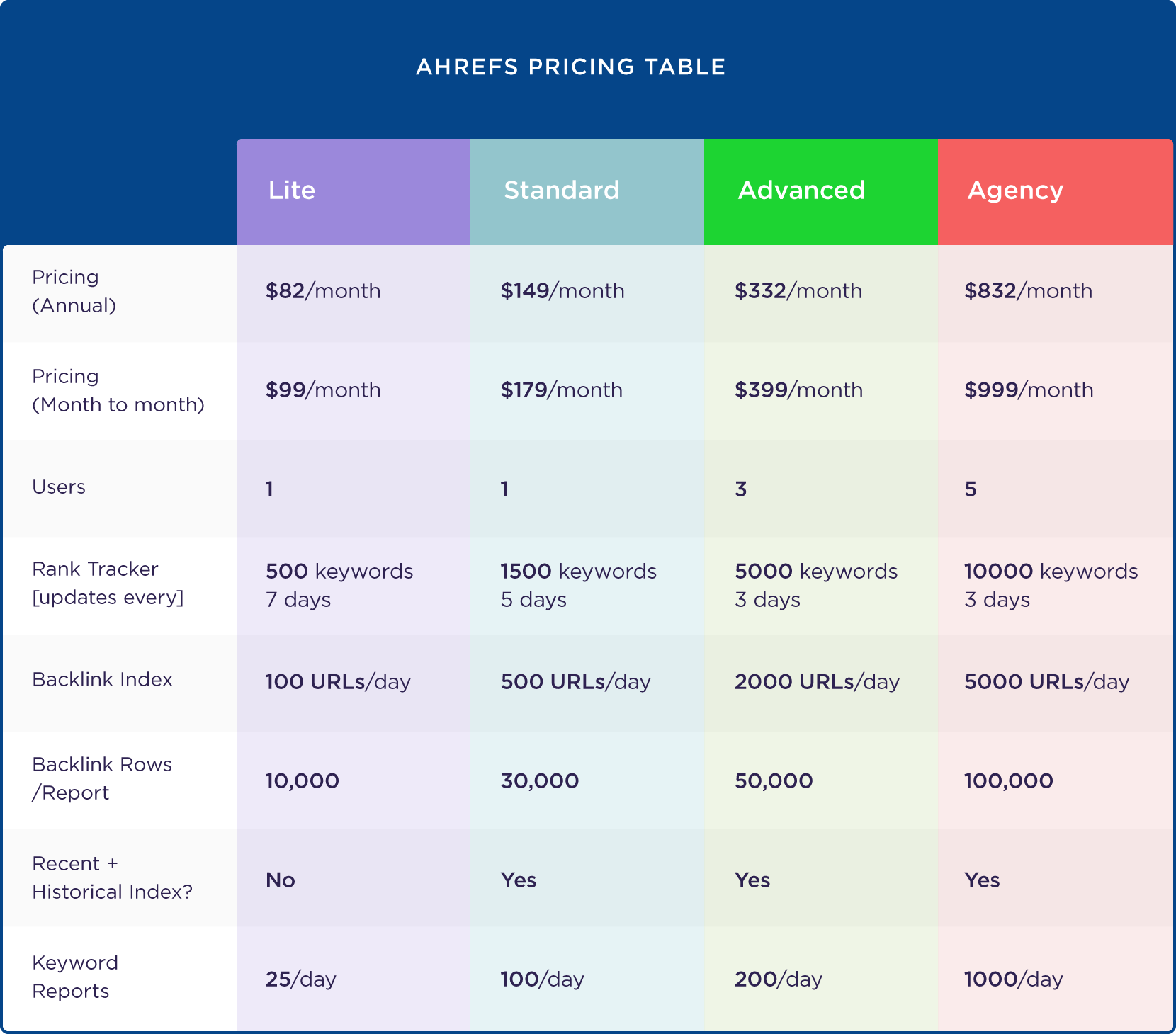
Mangools Review: Things I Liked
Here are the things in the Mangools tool that I liked the most:
Ease of Use: Mangools has a very user-friendly UI. All of their buttons and labels are large and easy to read. Every metric has a detailed explanation. And, in general, it’s easy to find what you need within a few clicks.
Value: 30 bucks per month for a feature-rich tool like Mangools is a great deal. Especially because you get access to the same link index that you’d get with a Majestic SEO subscription… but with a 100x better UI.
Cool Features: For a budget tool, Mangools has a few helpful features. My favorite was their Website Preview feature.
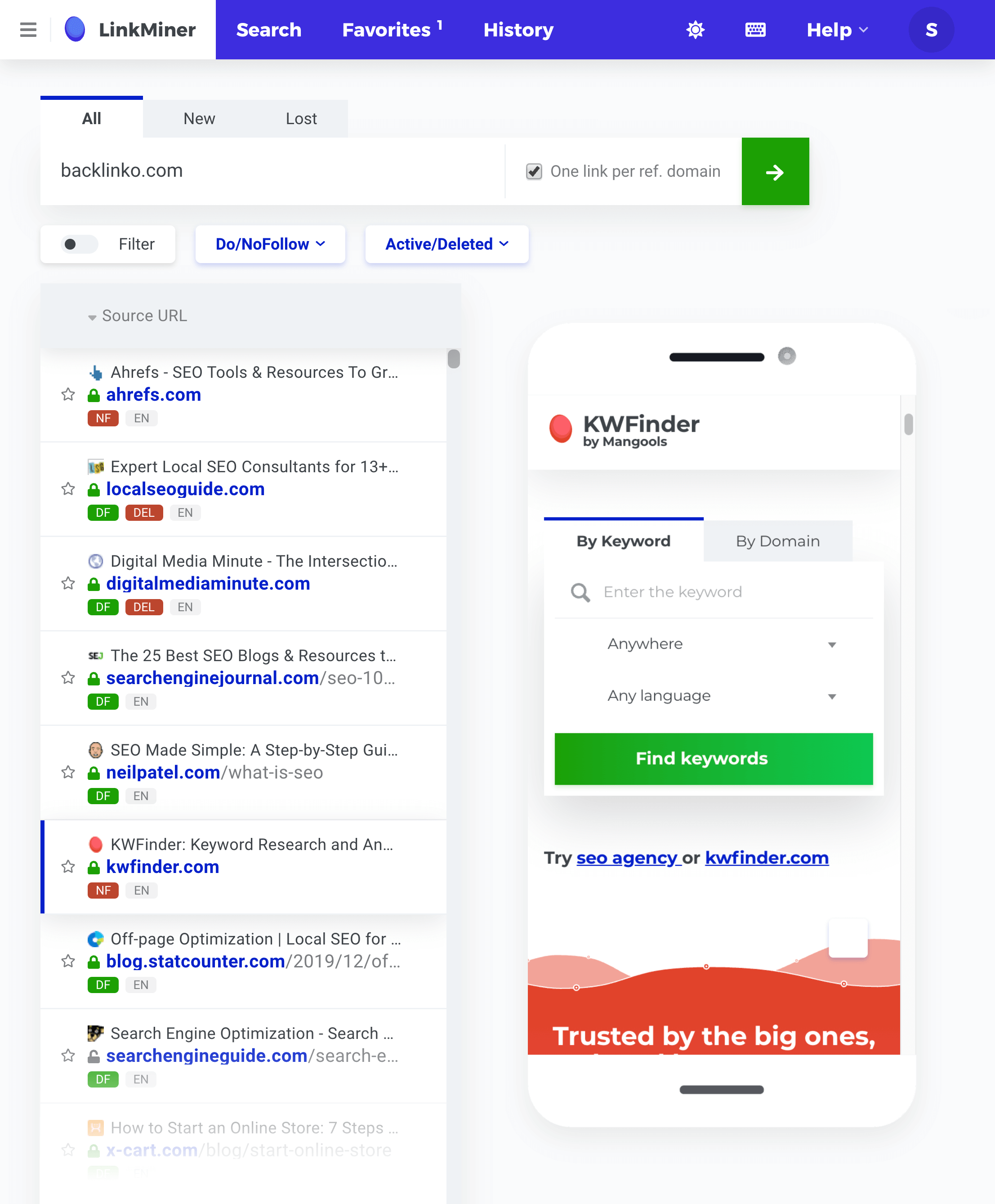
Mangools Review: Things I Didn’t Like
Now it’s time for me to highlight a few things that I felt Mangools could do better.
Their Apps Don’t Integrate: Using Mangools feels like you’re using 5 completely different tools.
Because you are.
In fact, when you click on one of their apps, it opens in a new tab.
Contrast that with something like Ahrefs, where everything is super integrated. With an integrated feature set like Ahrefs, you can go from link analysis to keyword research to SEO site audits with one click.
Lack of a True Dashboard: It’s SUPER helpful to have a dashboard that lists all of the websites that you manage in one place.
For example, here’s what I see when I login to Ahrefs:
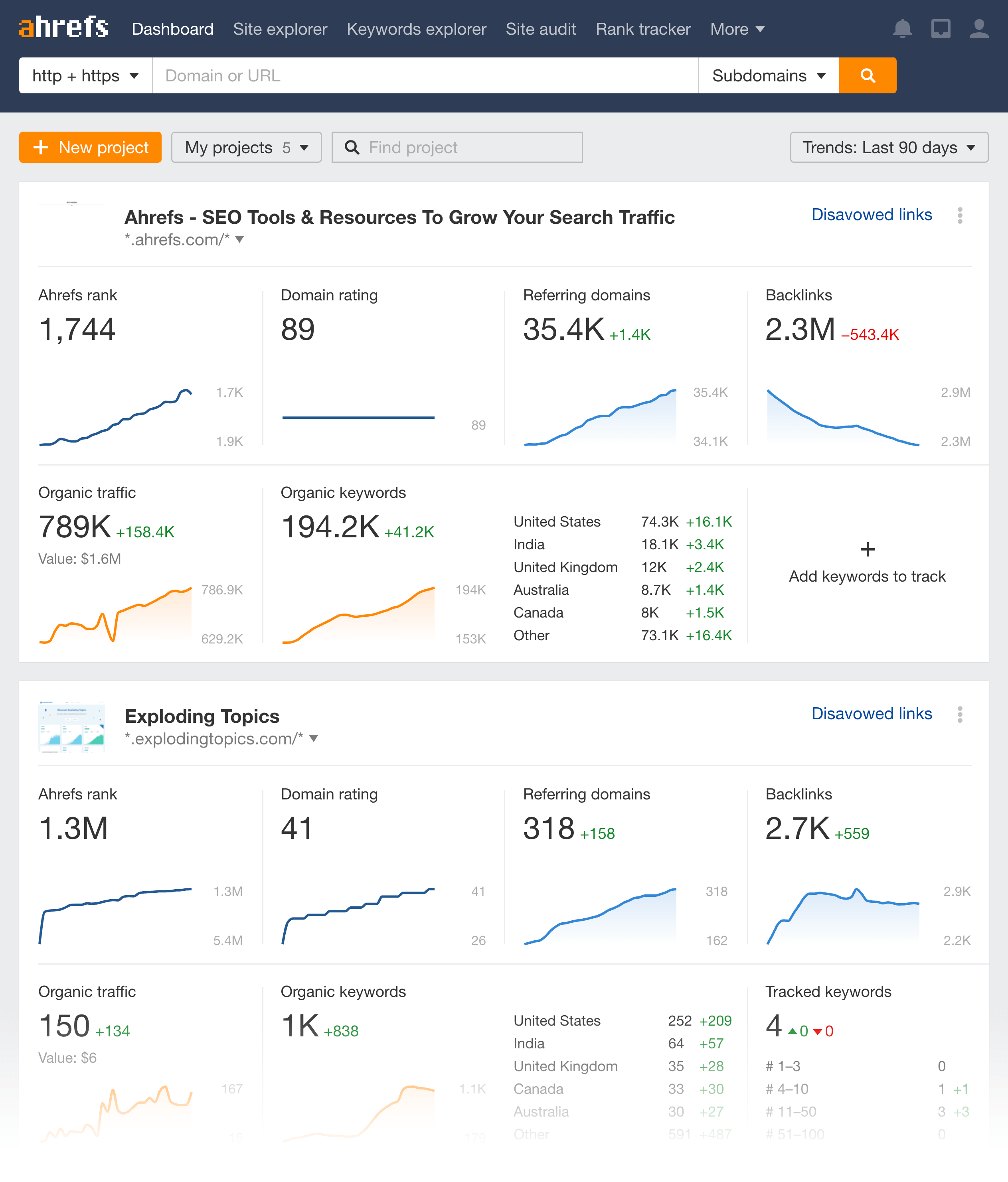
These are a mix of competing sites and sites that I run. It’s VERY helpful to get an overview of how the site’s are doing on a single page.
Unfortunately, the dashboard in Mangools leaves a lot to be desired. It’s not personalized. And there’s no way to easily see how my sites are doing.
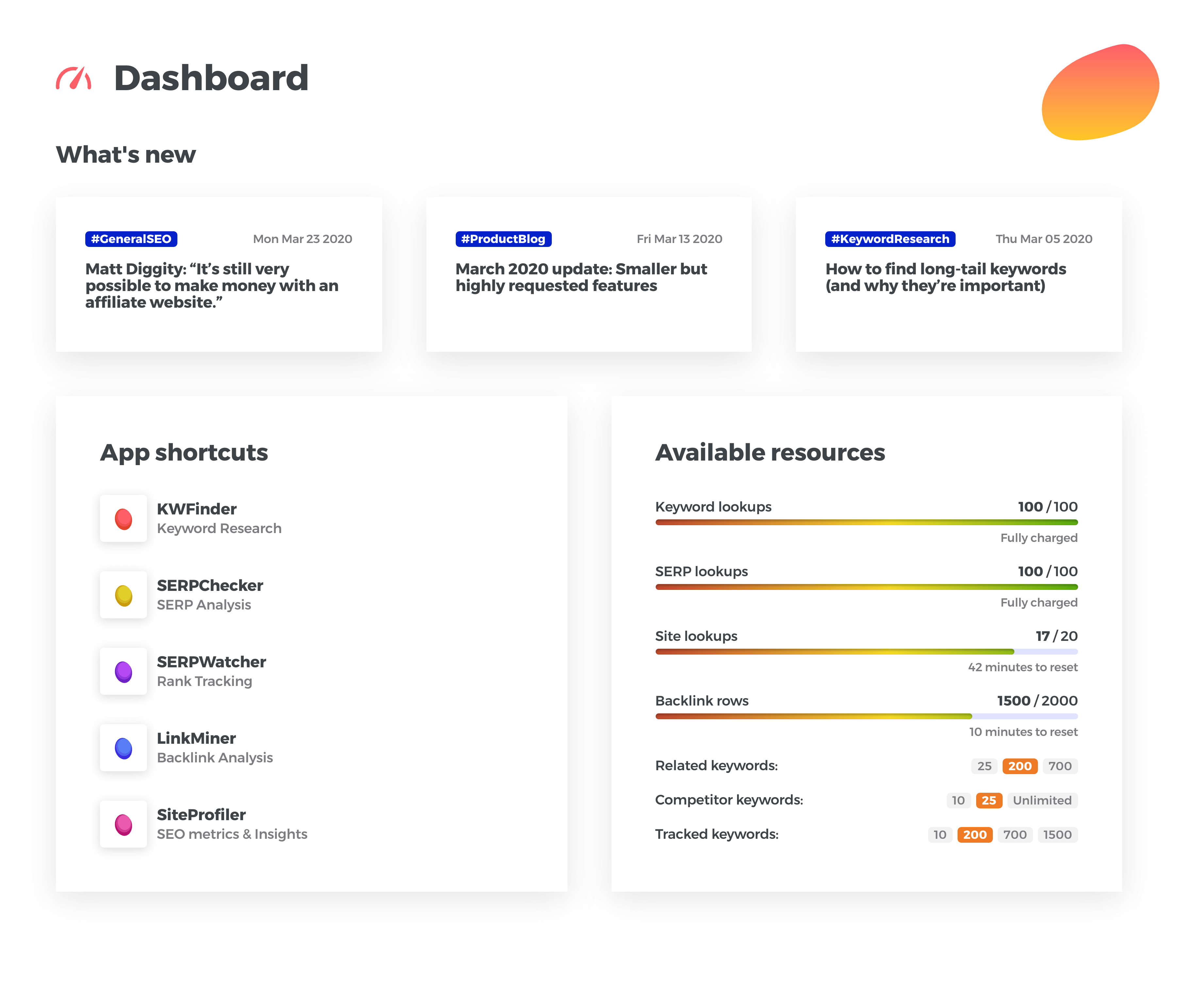
Lacks Features: Mangools doesn’t have some of the features that its main competitors have. For example, Ahrefs has a tool called Content Explorer that helps you find highly-shared content.
And SEMrush has an excellent SEO site audit tool and a giant suite of features to help with PPC campaigns. These are just a few of many examples of features that Mangools lacks.
My Mangools Review: The Bottom Line
Whether or not you go with Mangools depends on who you are. And how much you have to spend on SEO.
If you’re a blogger or someone that does SEO on the side, you may not have a huge SEO tool budget. And if you are on a tight budget, you can squeeze a lot of value out of Mangools. At 30 bucks a month you get access to A LOT of valuable features for keyword research, backlink analysis and more.
That said: you can’t really compare Mangools to Ahrefs or SEMrush: the two best SEO tools on the market. They’re in different leagues.
Yes, you can always spend more and sign up for Mangools Premium. But the tool doesn’t improve at each tier. You just get access to more data.
If you’re an SEO expert, you’re much better off spending the extra money on Ahrefs or SEMrush. These two tools may be more expensive than Mangools, but they are much more feature-rich than Mangools.
Bottom Line? If you’re on a limited budget, or if SEO isn’t that big of a deal for your business, Mangools is definitely good enough.
But if SEO is super important for your business, I wouldn’t recommend Mangools. I’d go with Ahrefs, SEMrush or Moz Pro.
Now It’s Your Turn
There you have it: my complete review of Mangools.
Backlinko is owned by Semrush. We’re still obsessed with bringing you world-class SEO insights, backed by hands-on experience. Unless otherwise noted, this content was written by either an employee or paid contractor of Semrush Inc.
